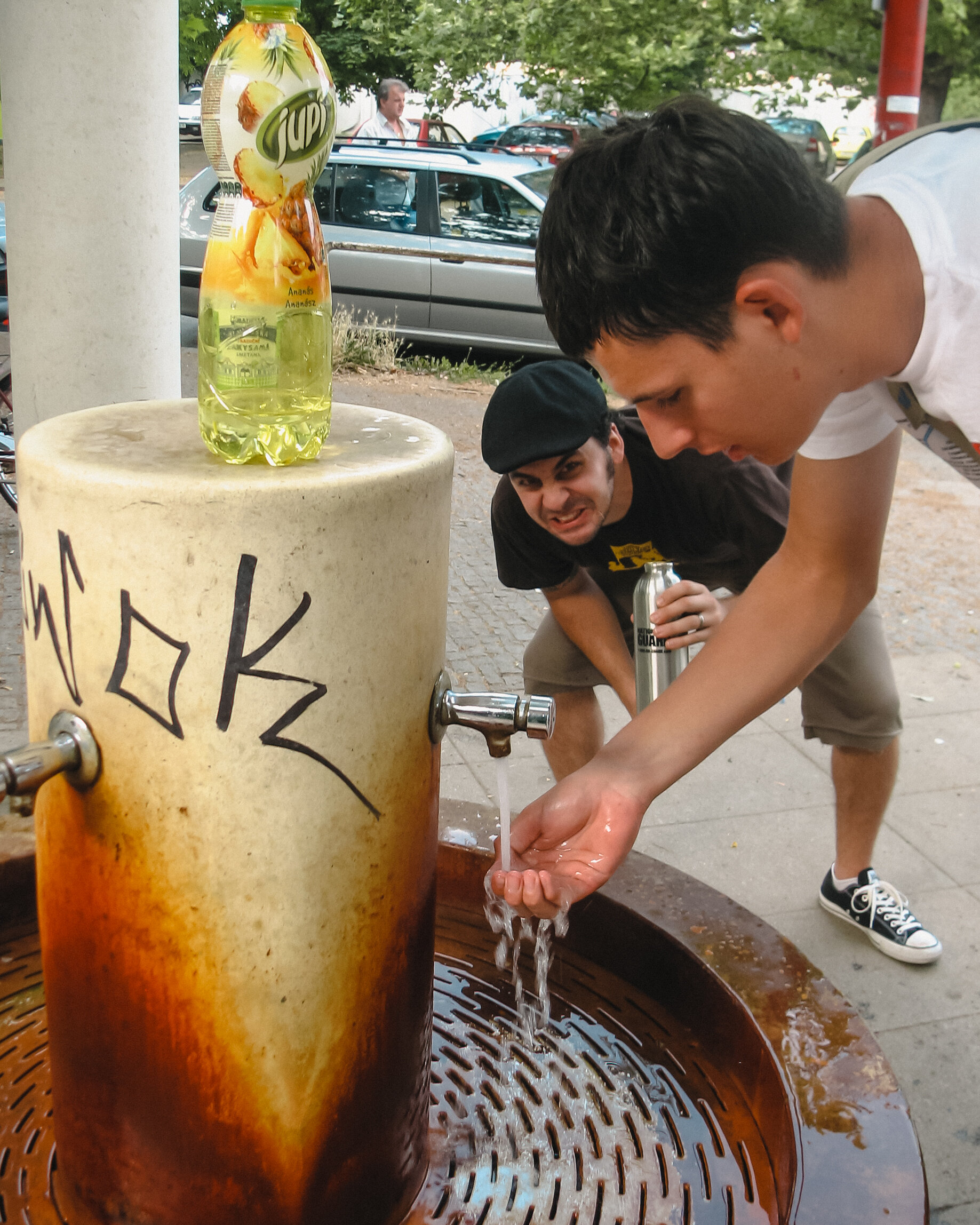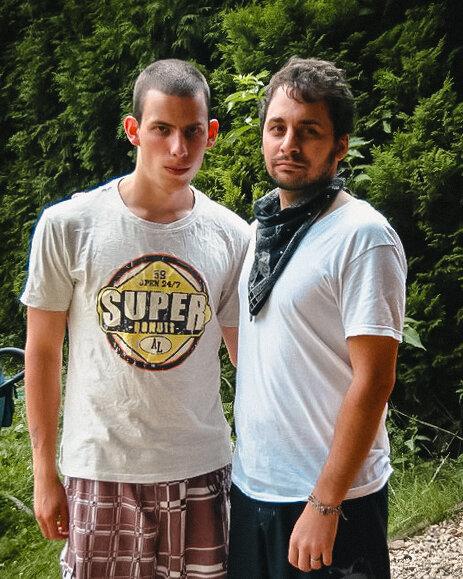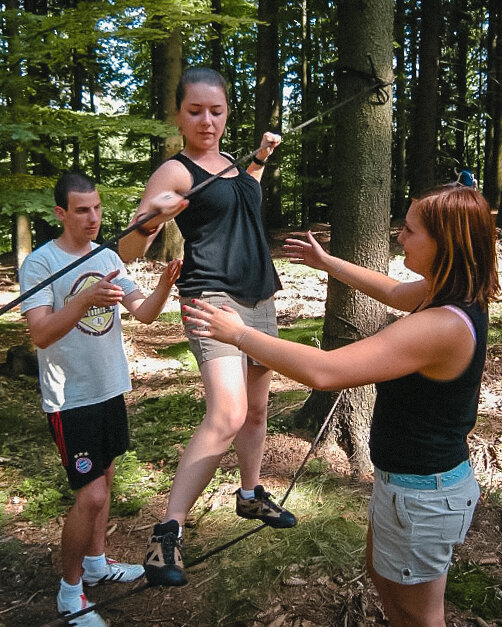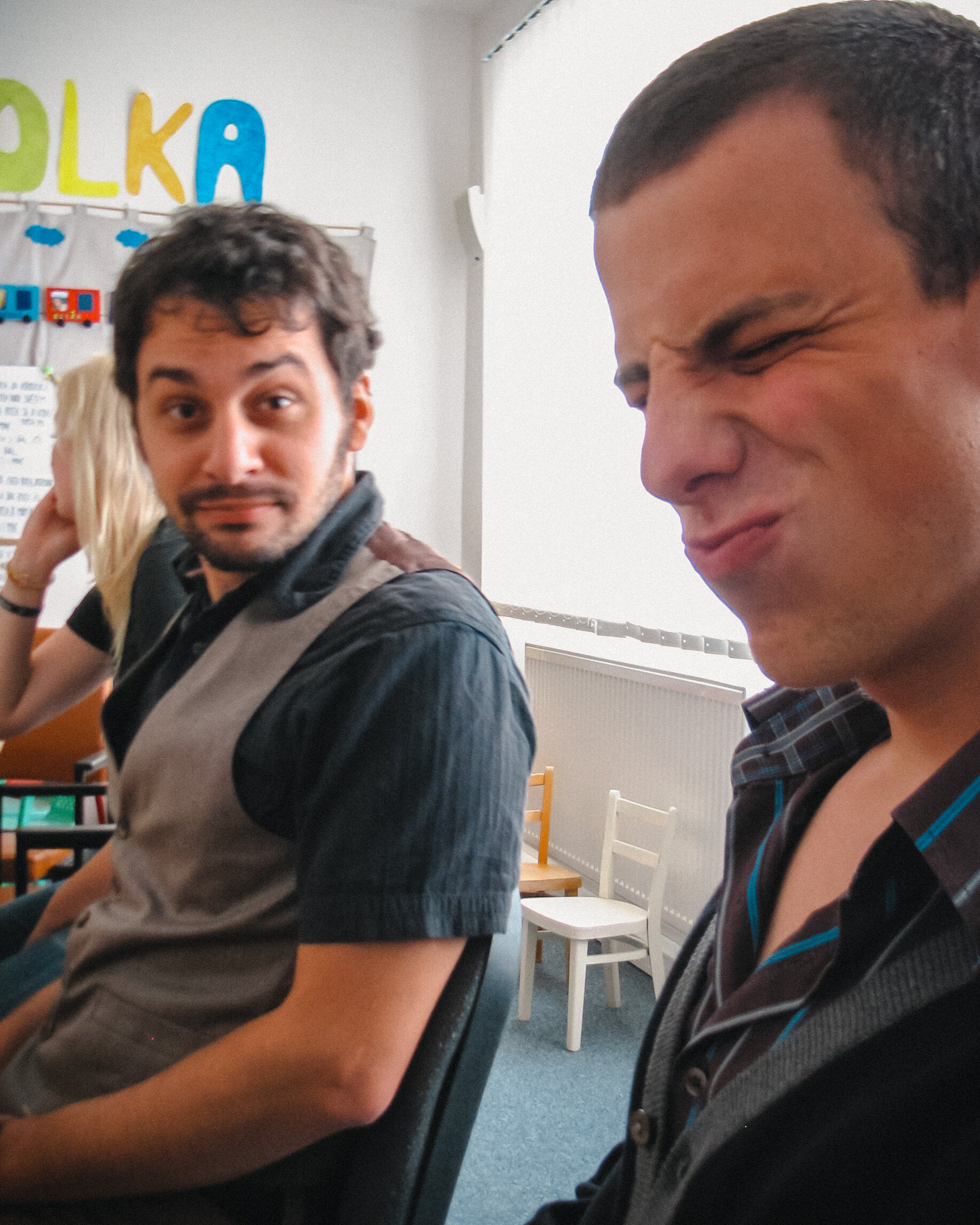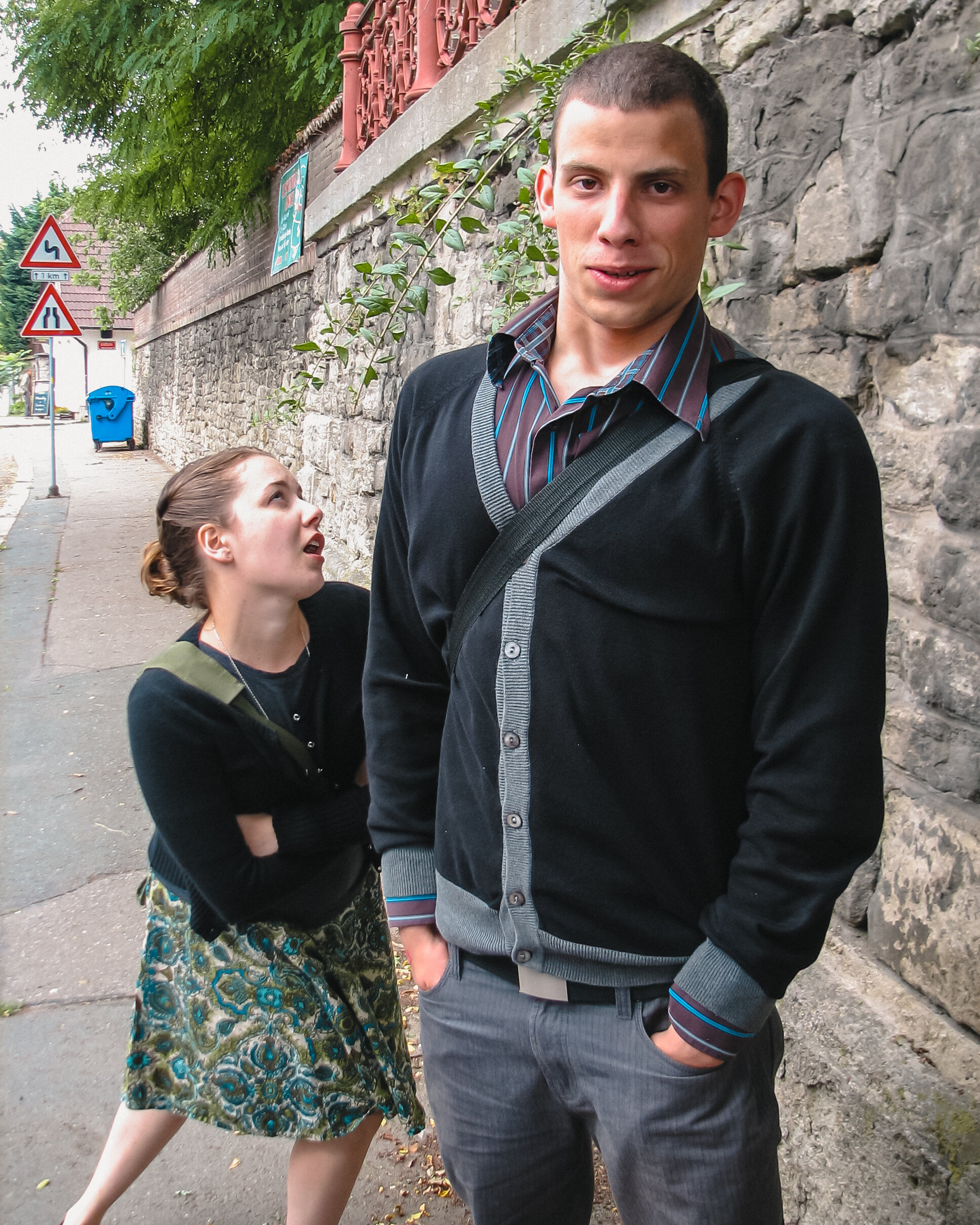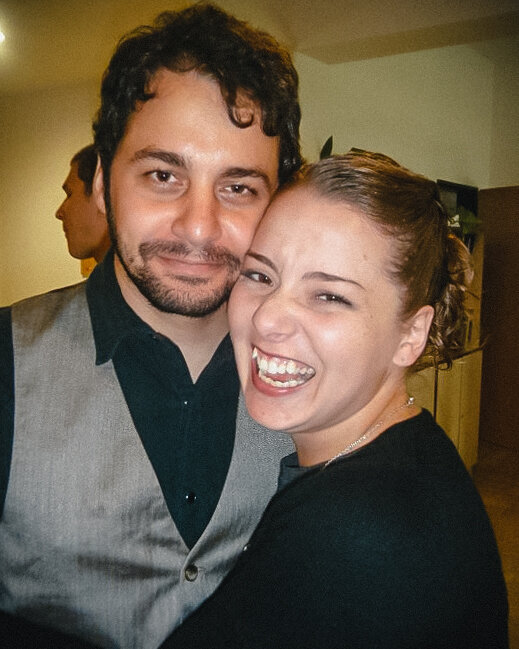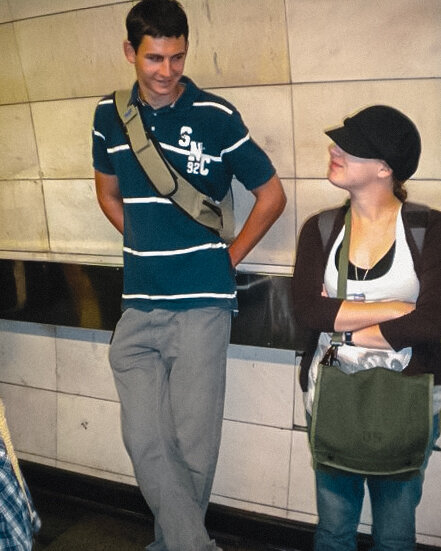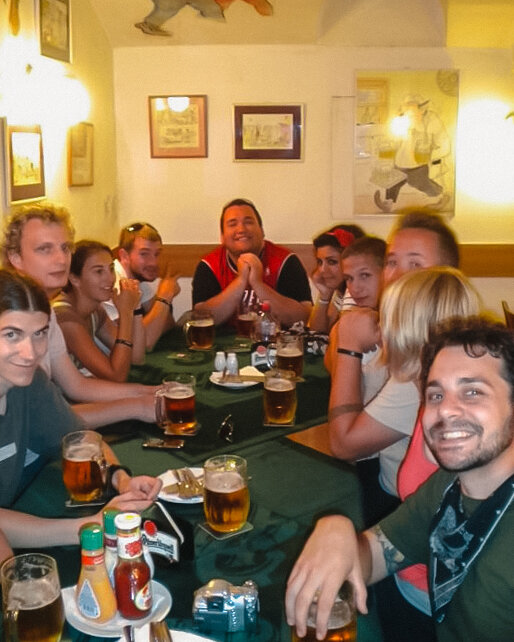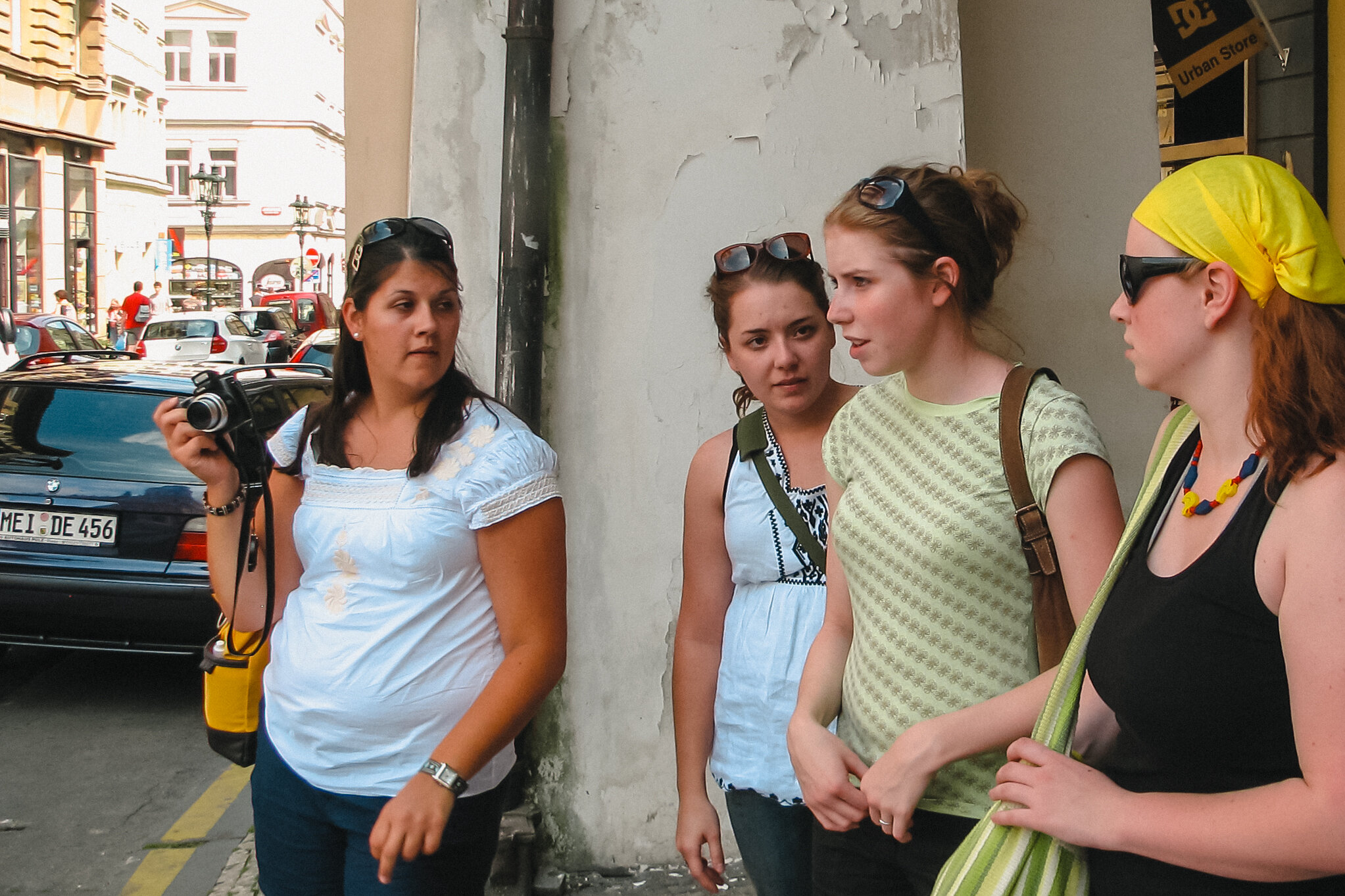
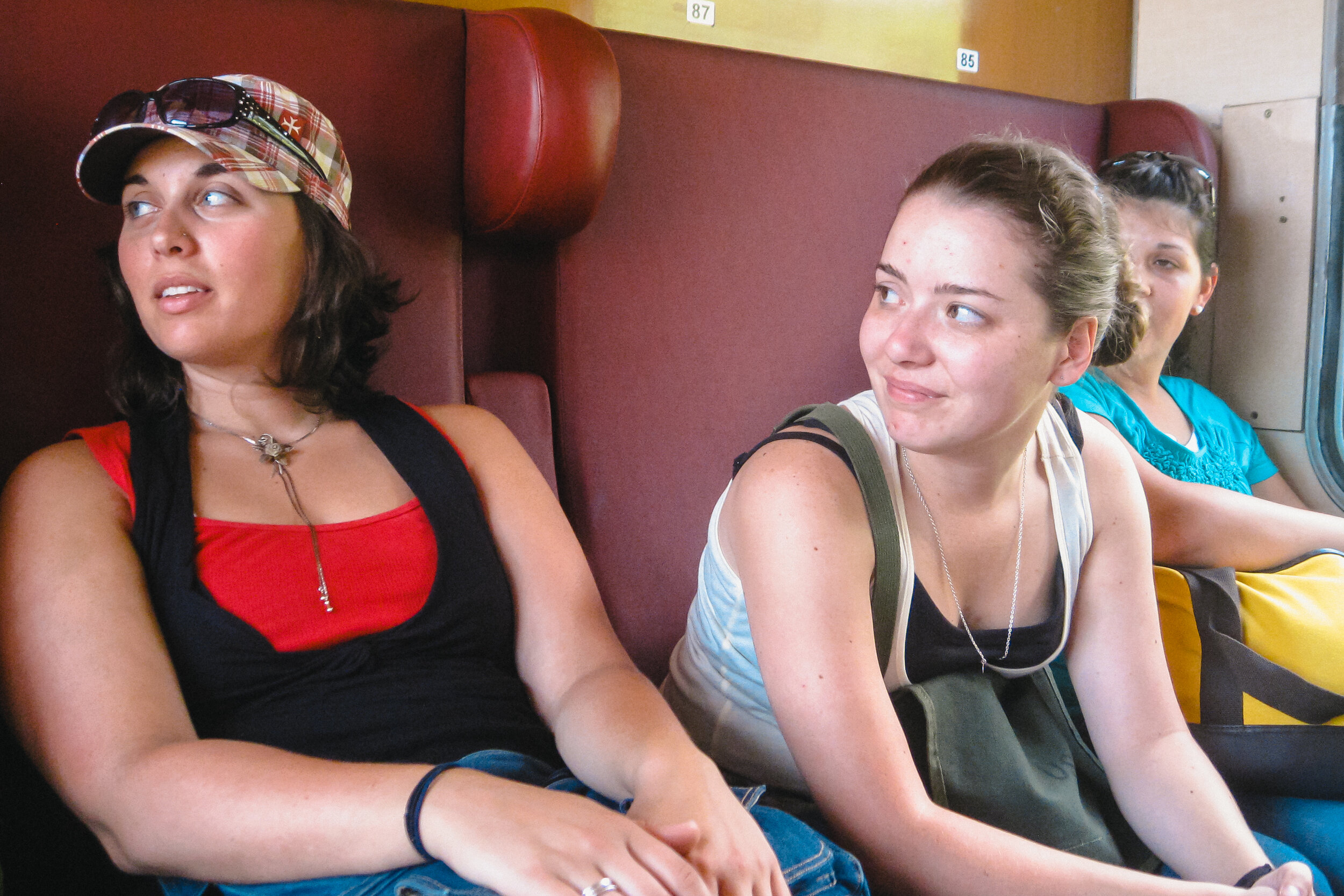
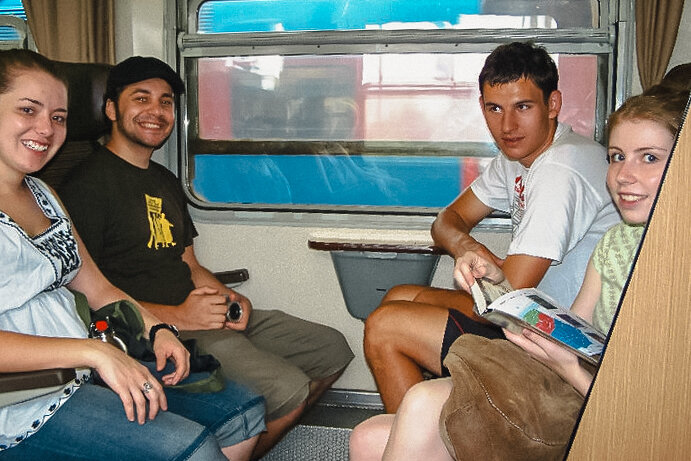
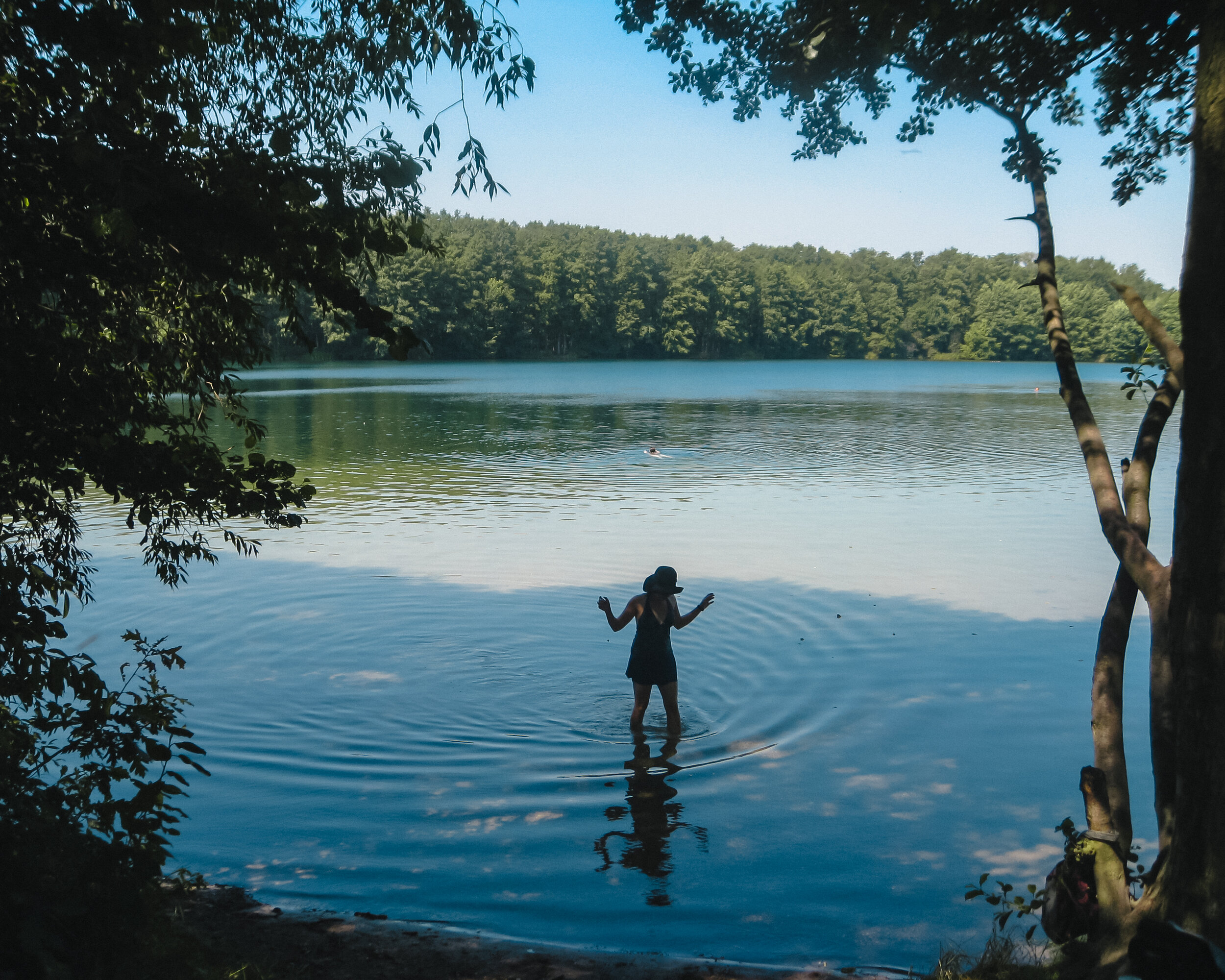
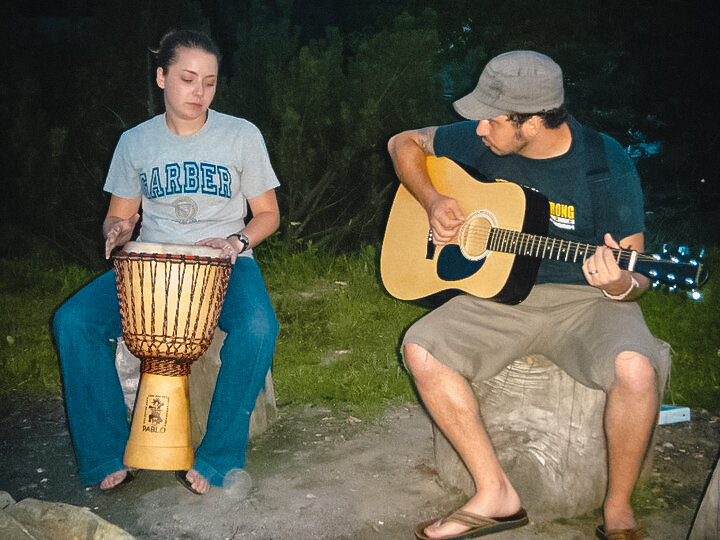
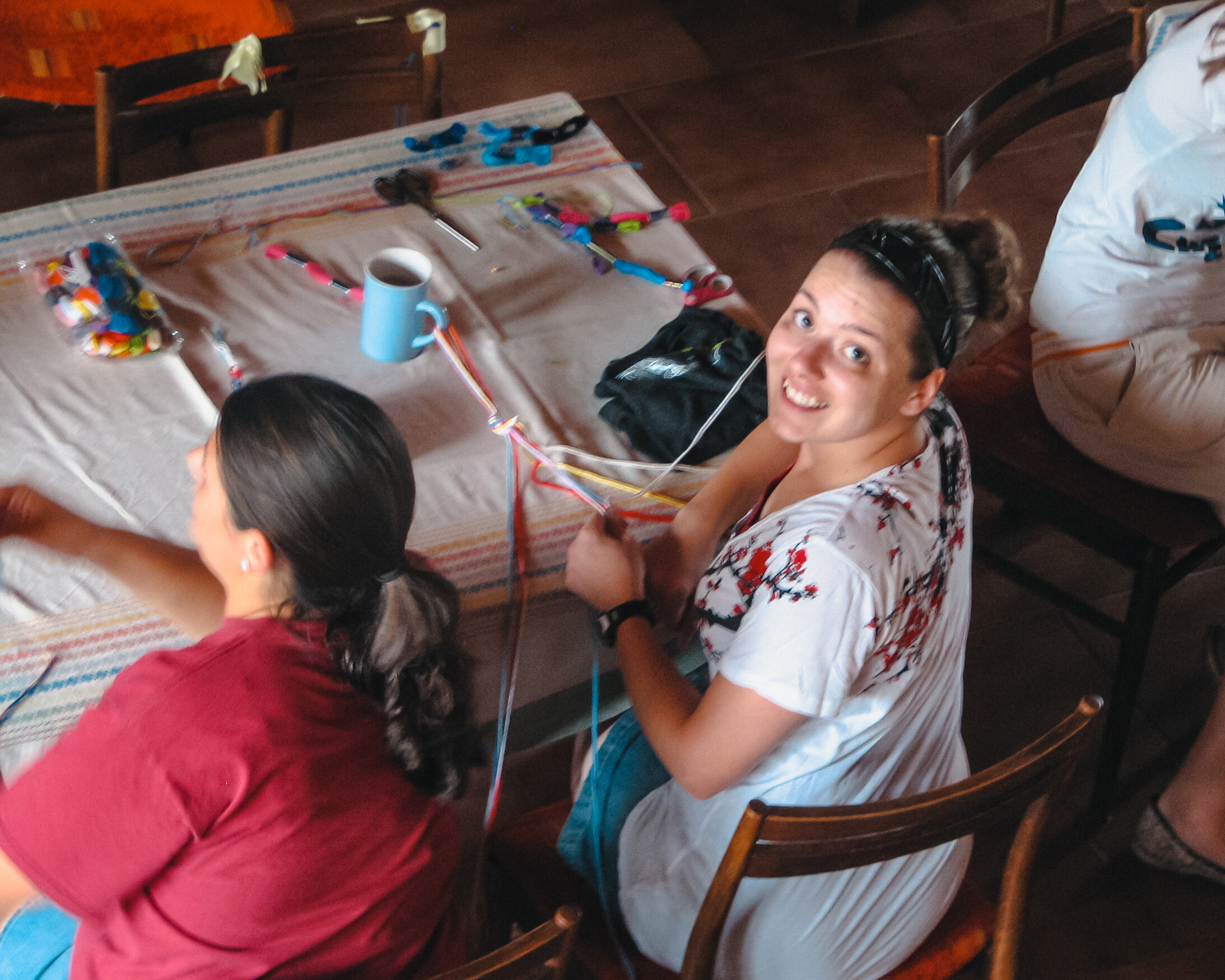
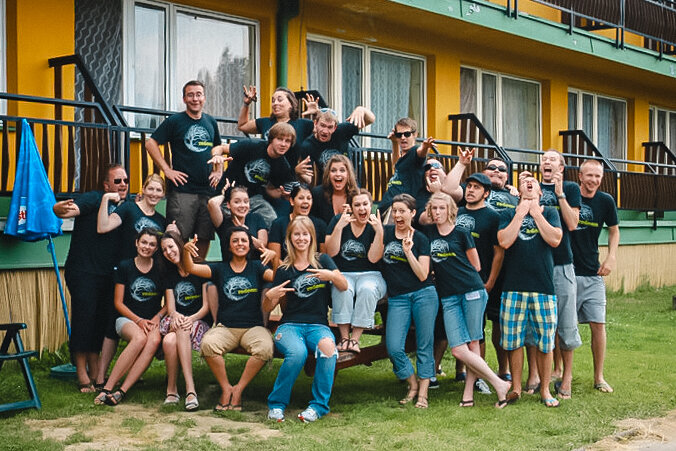
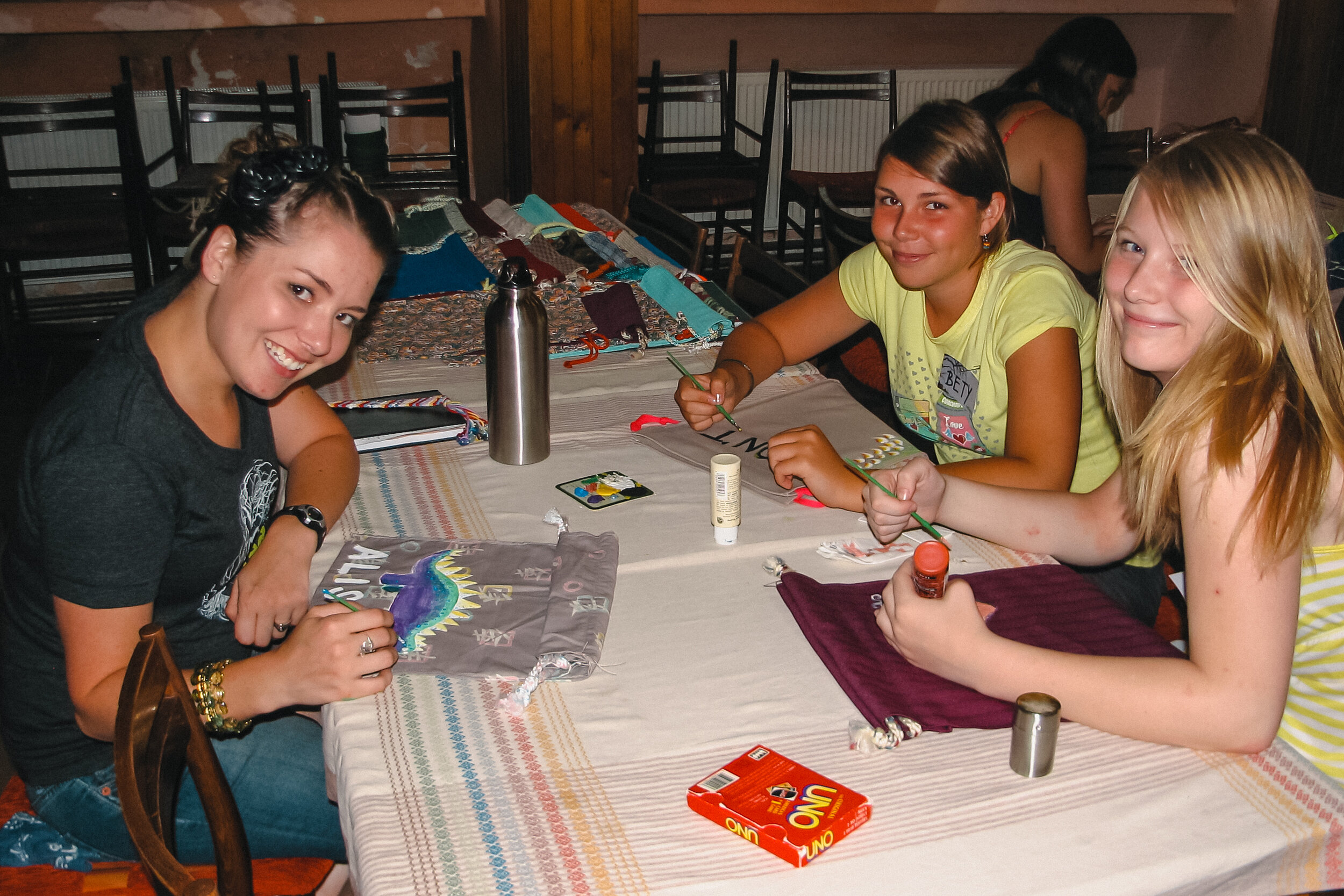
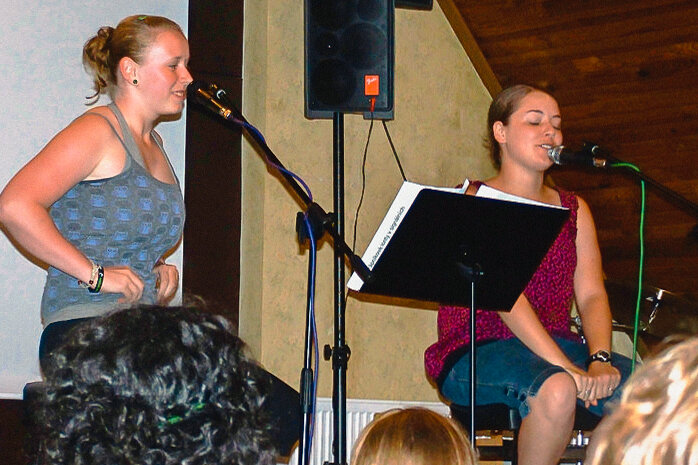
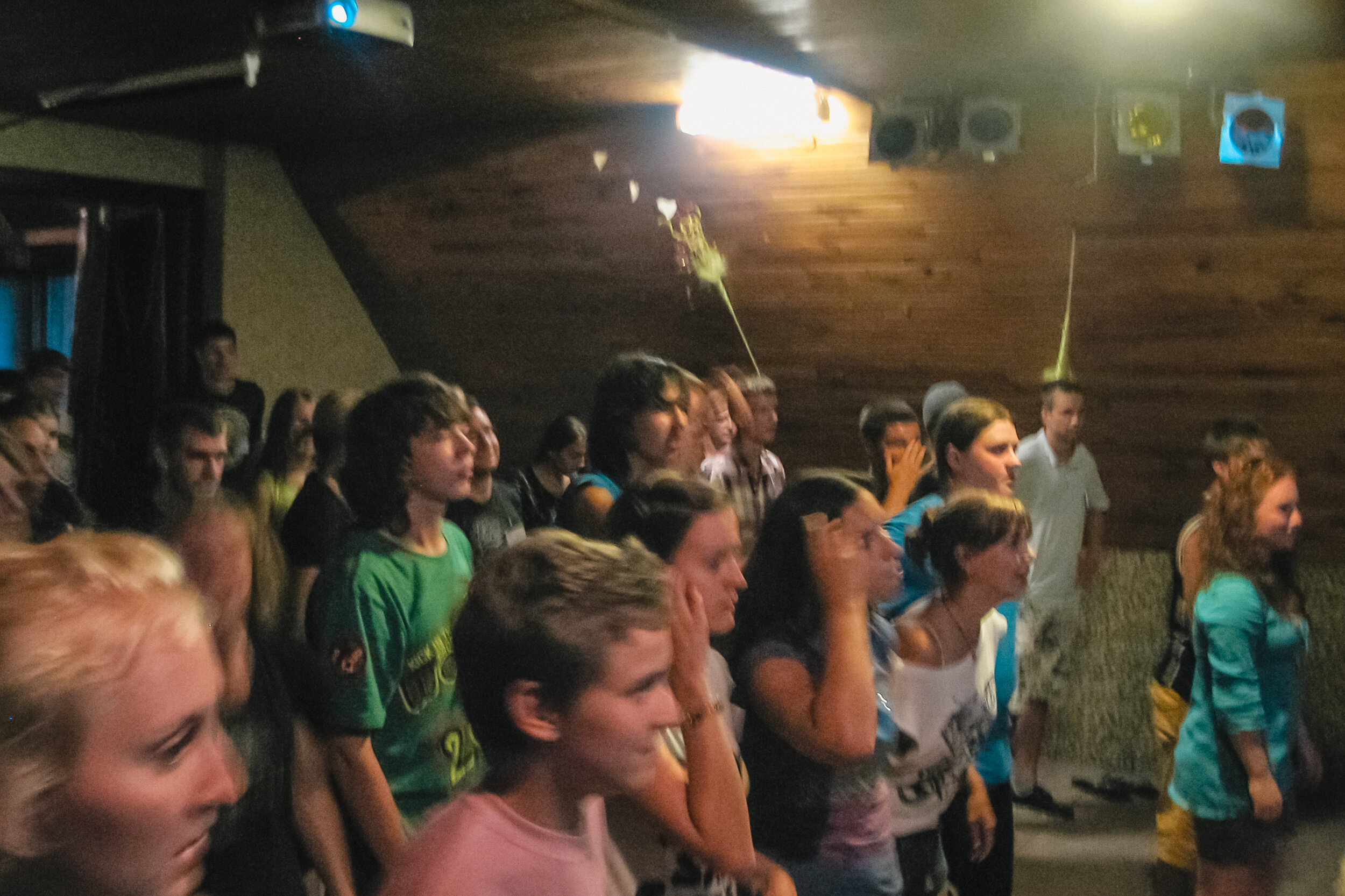
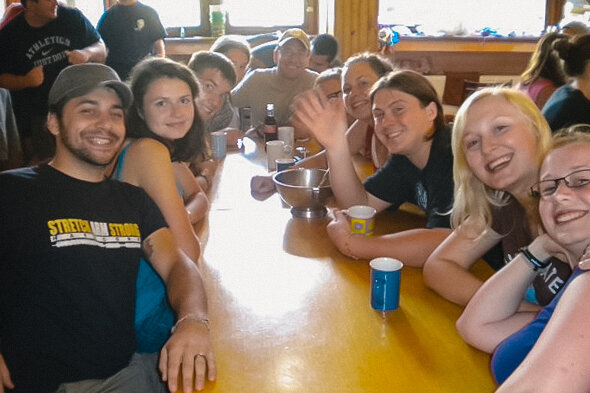
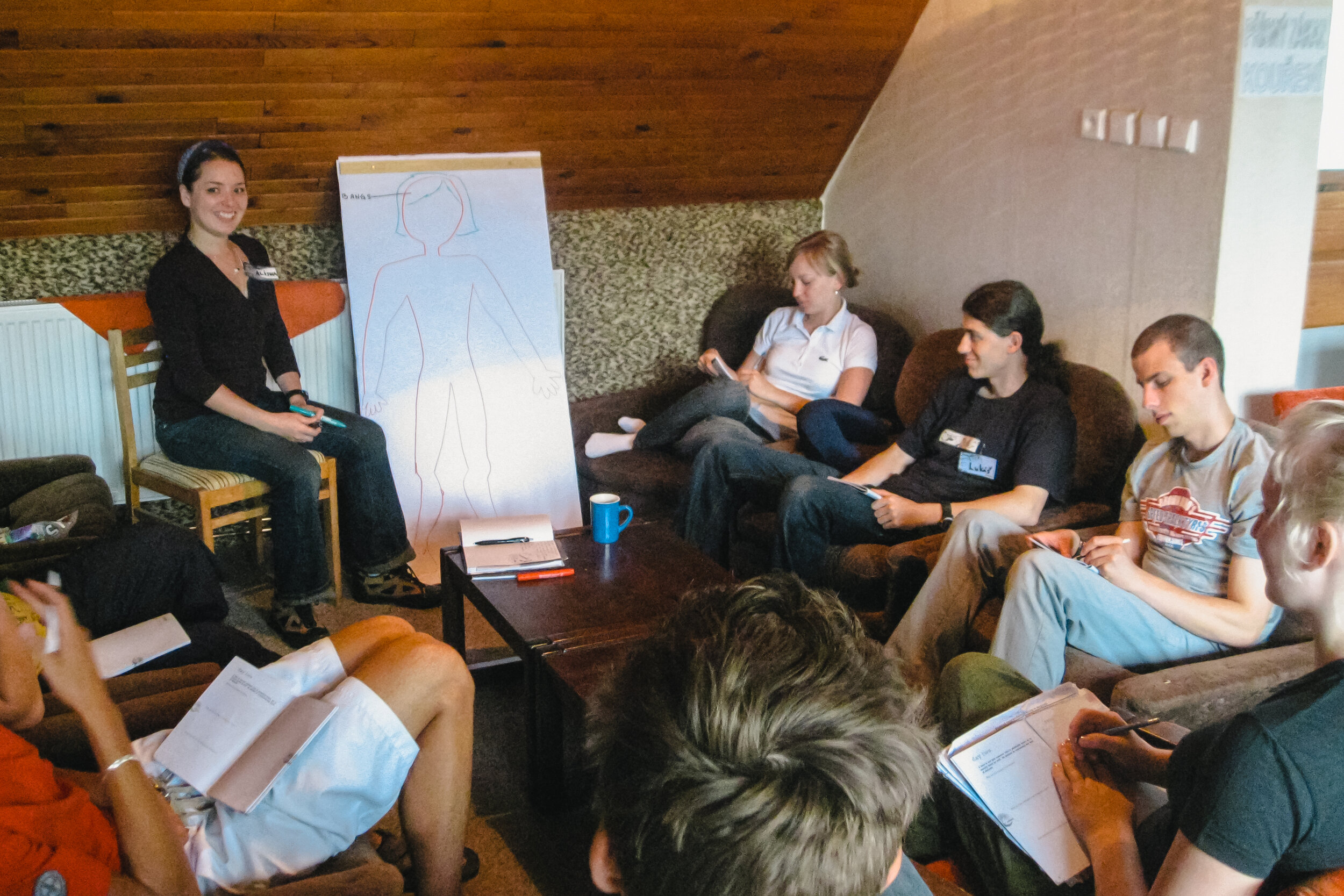
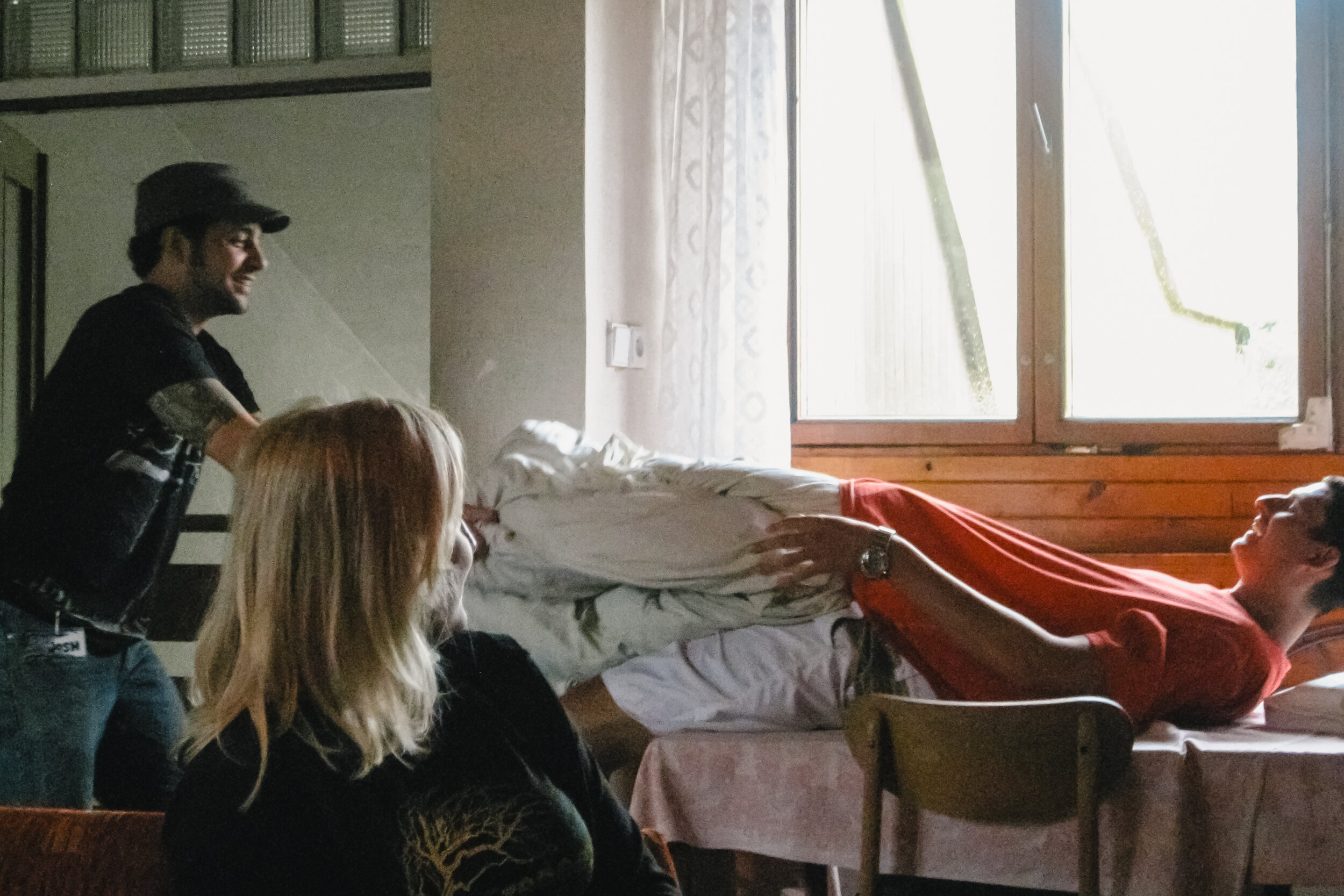
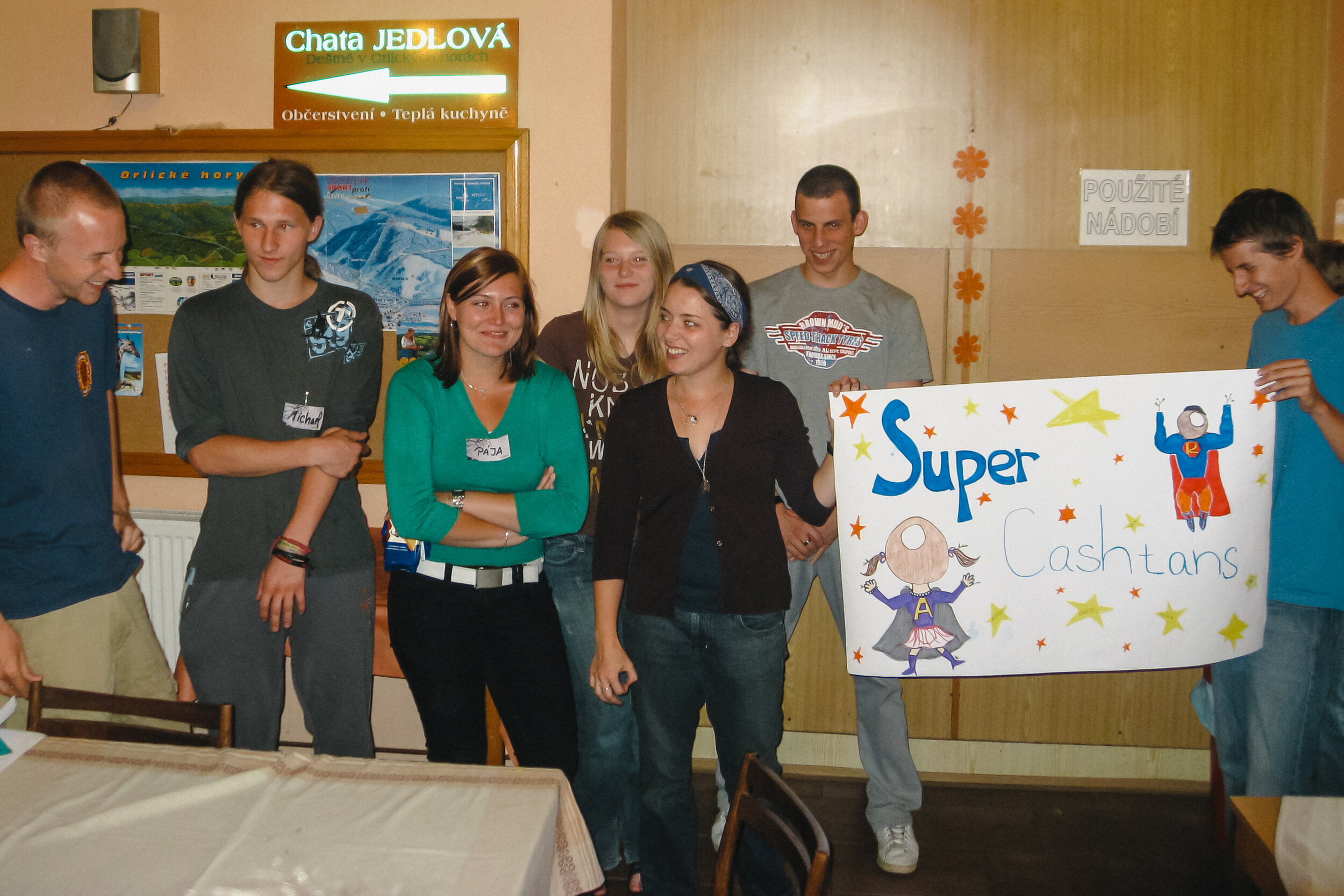
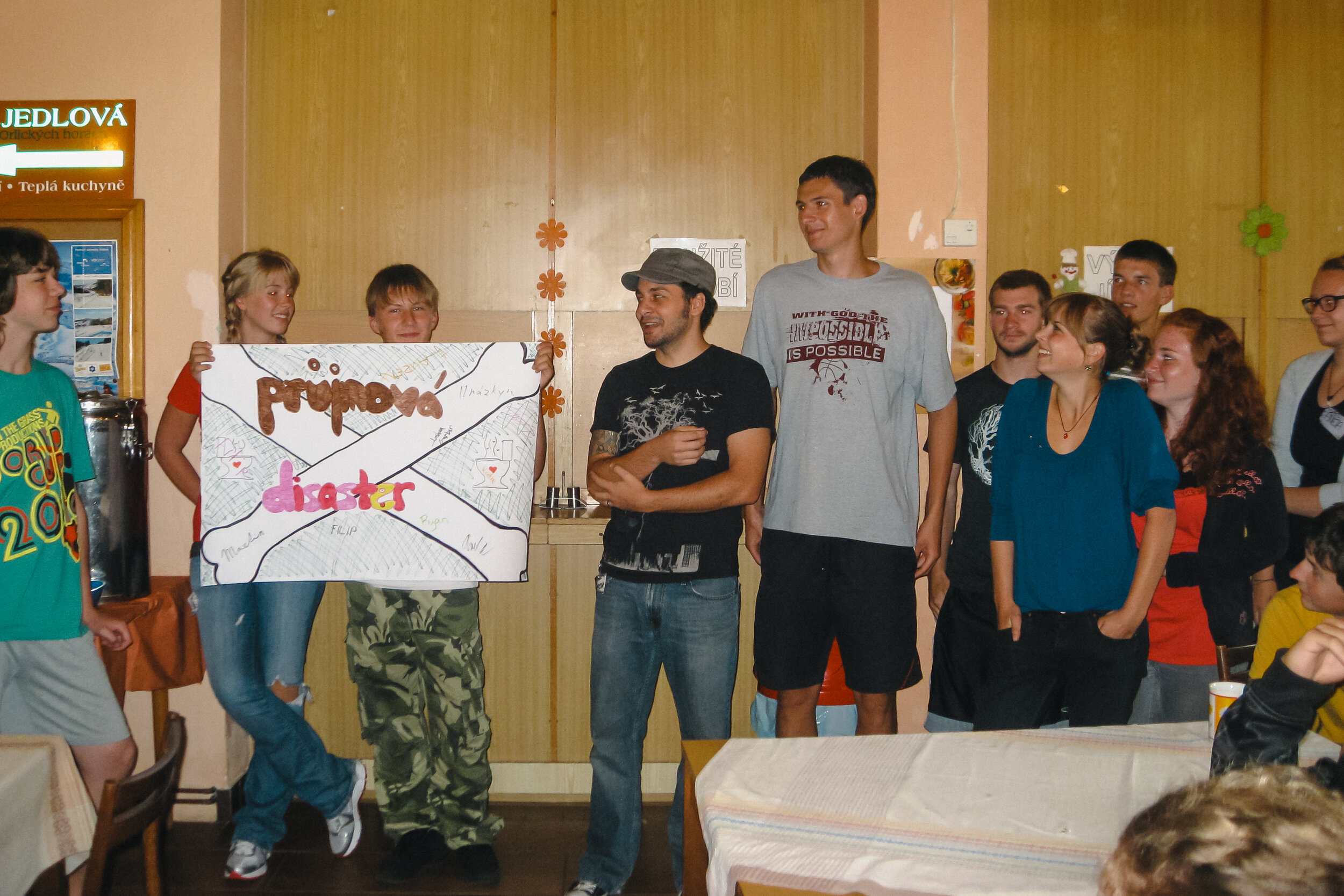
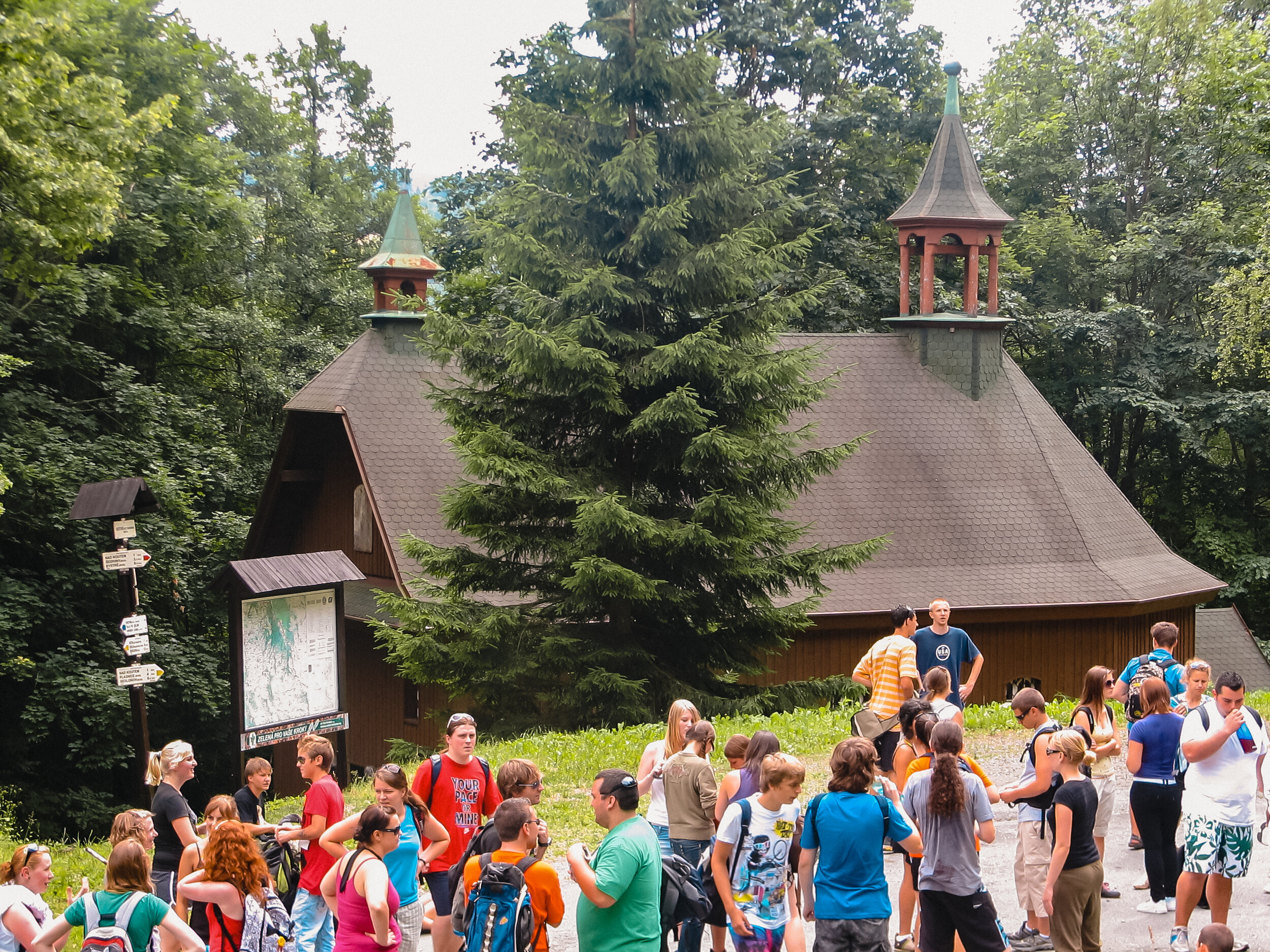
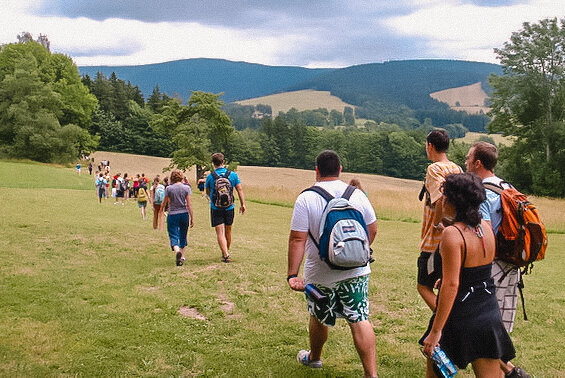
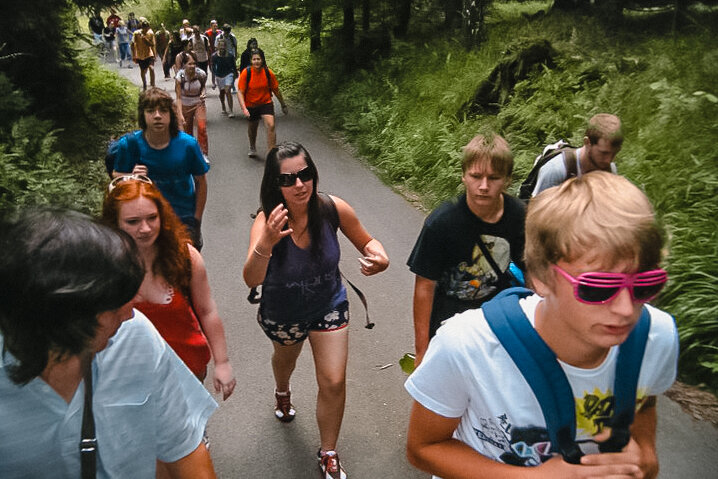
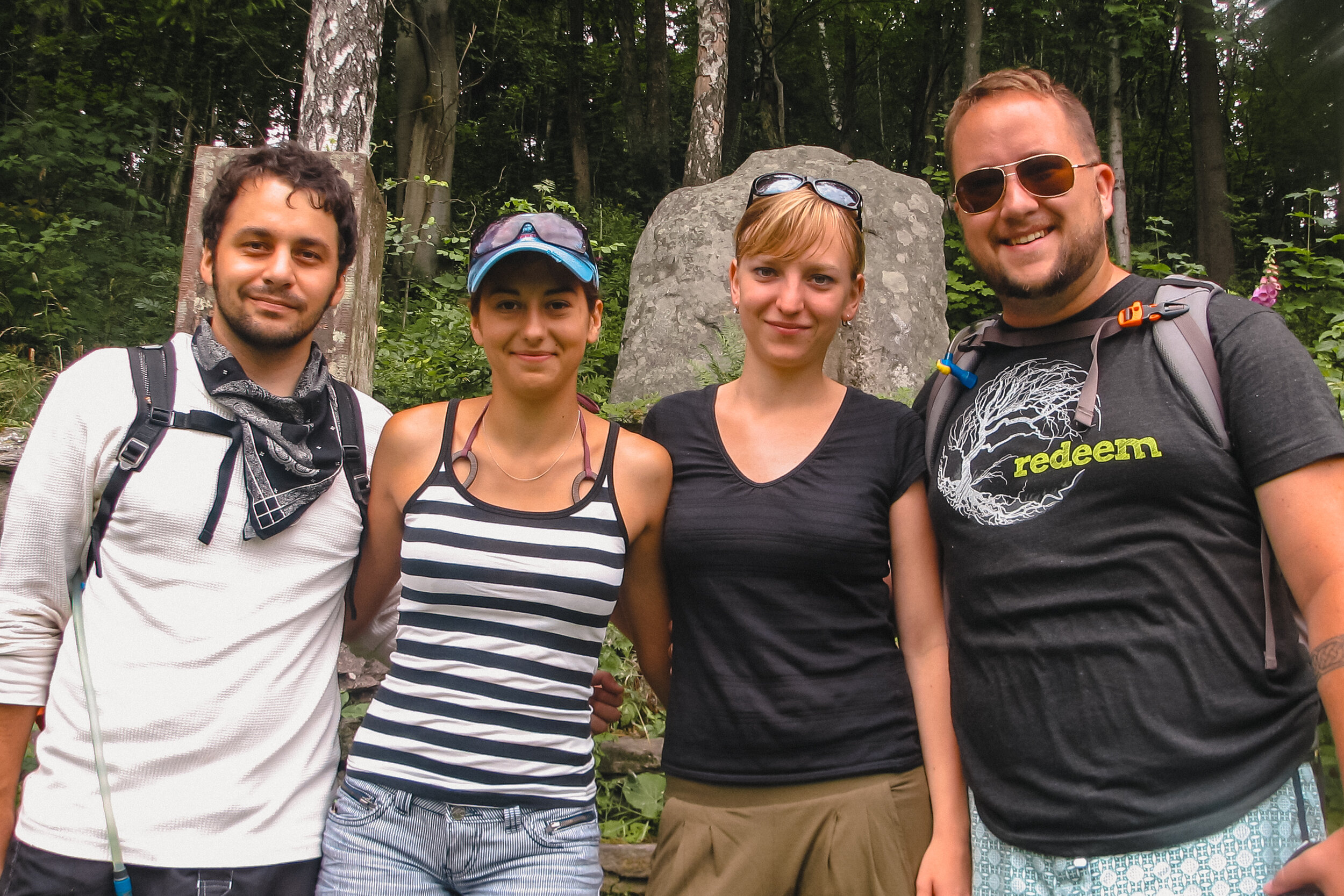
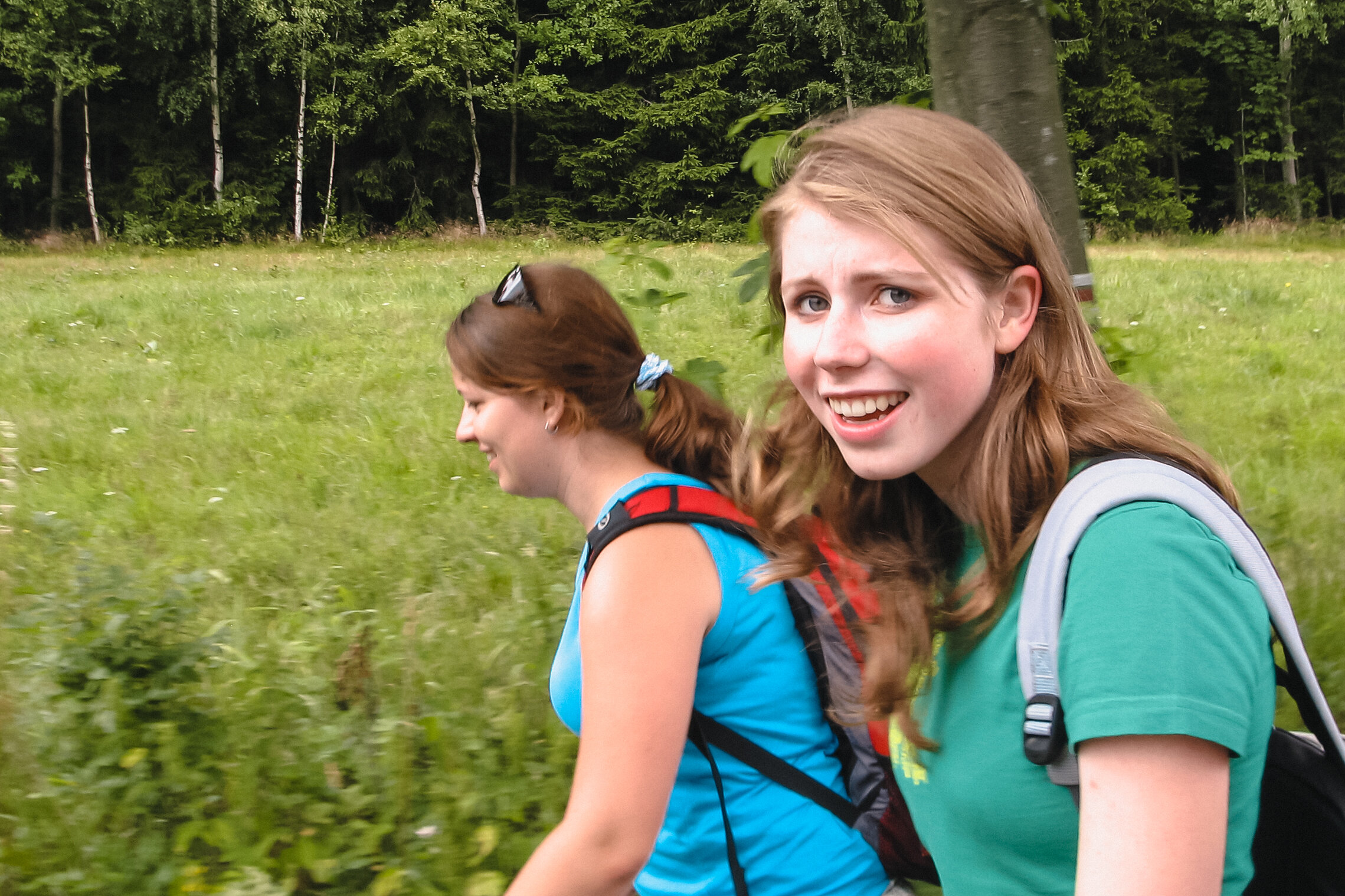
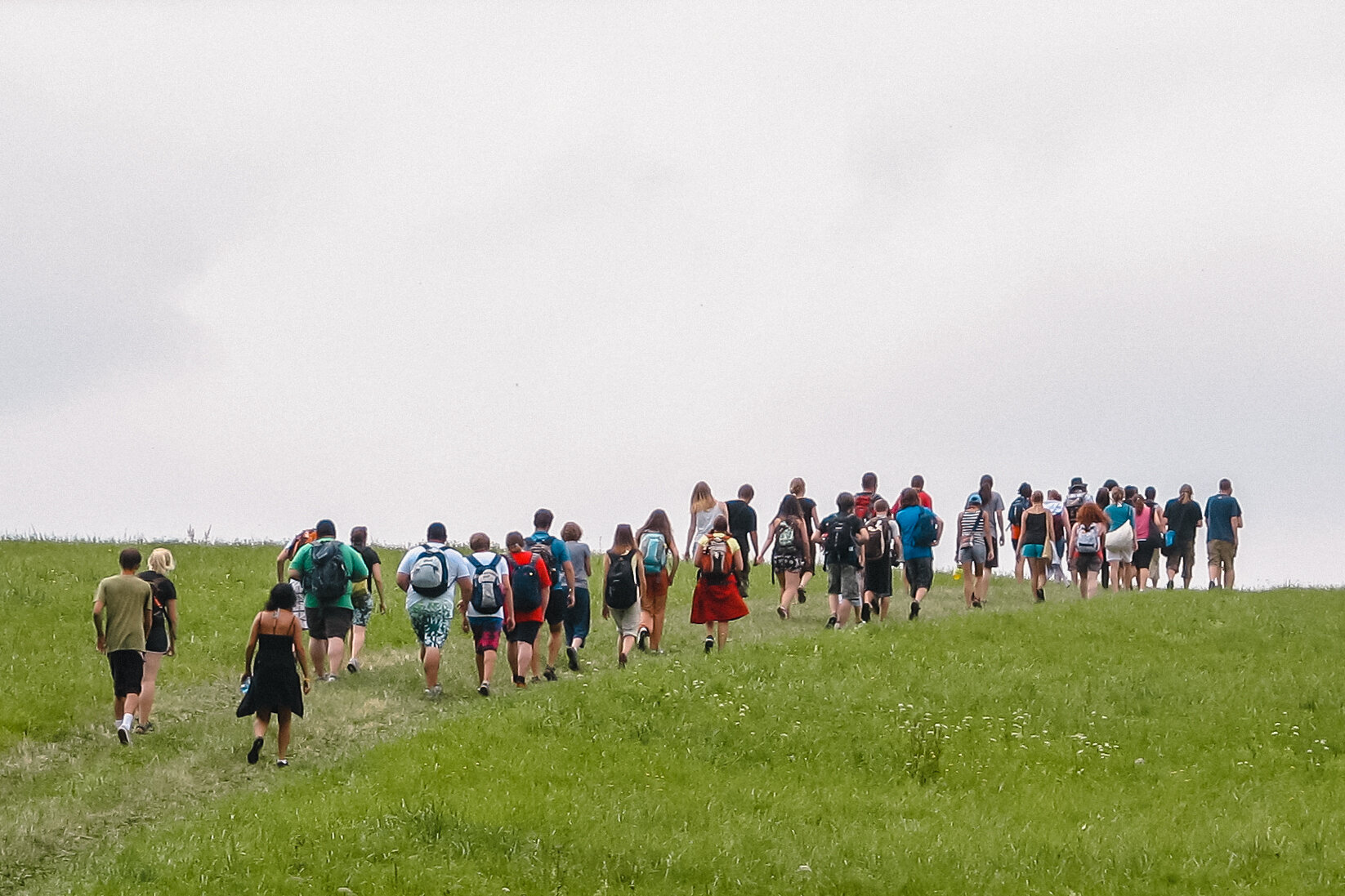
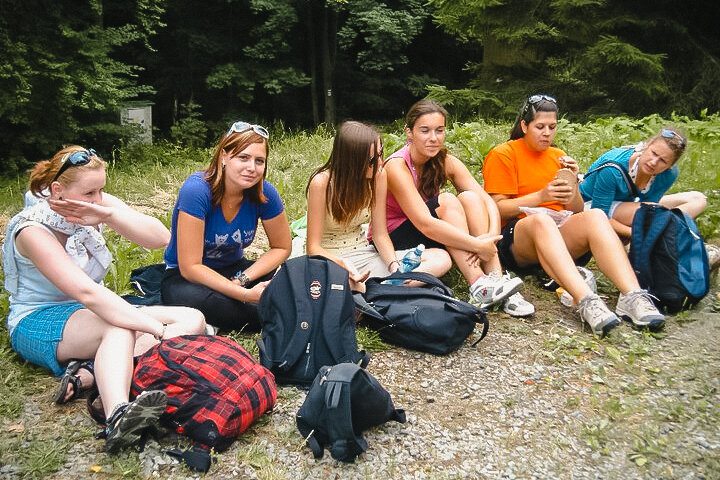
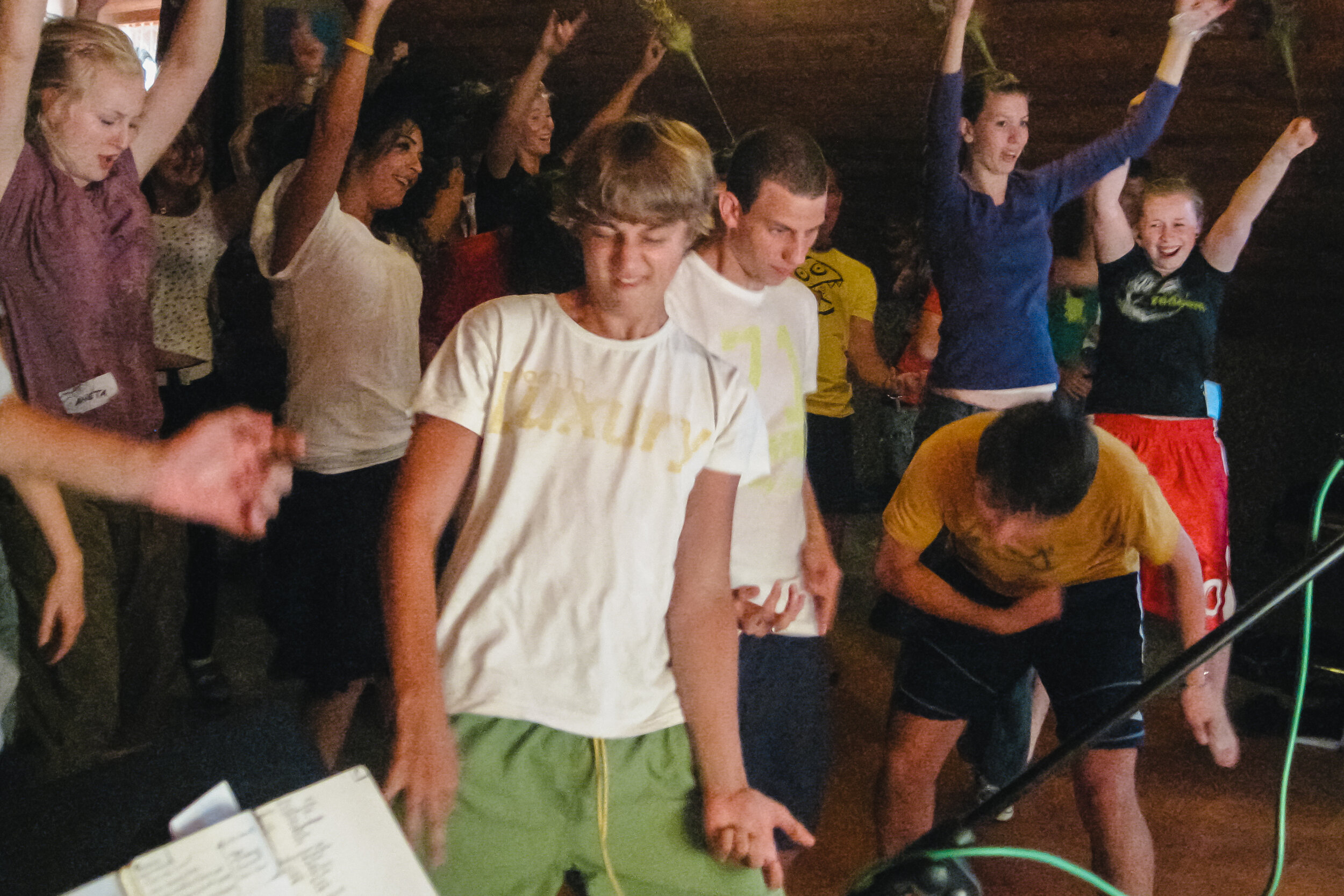
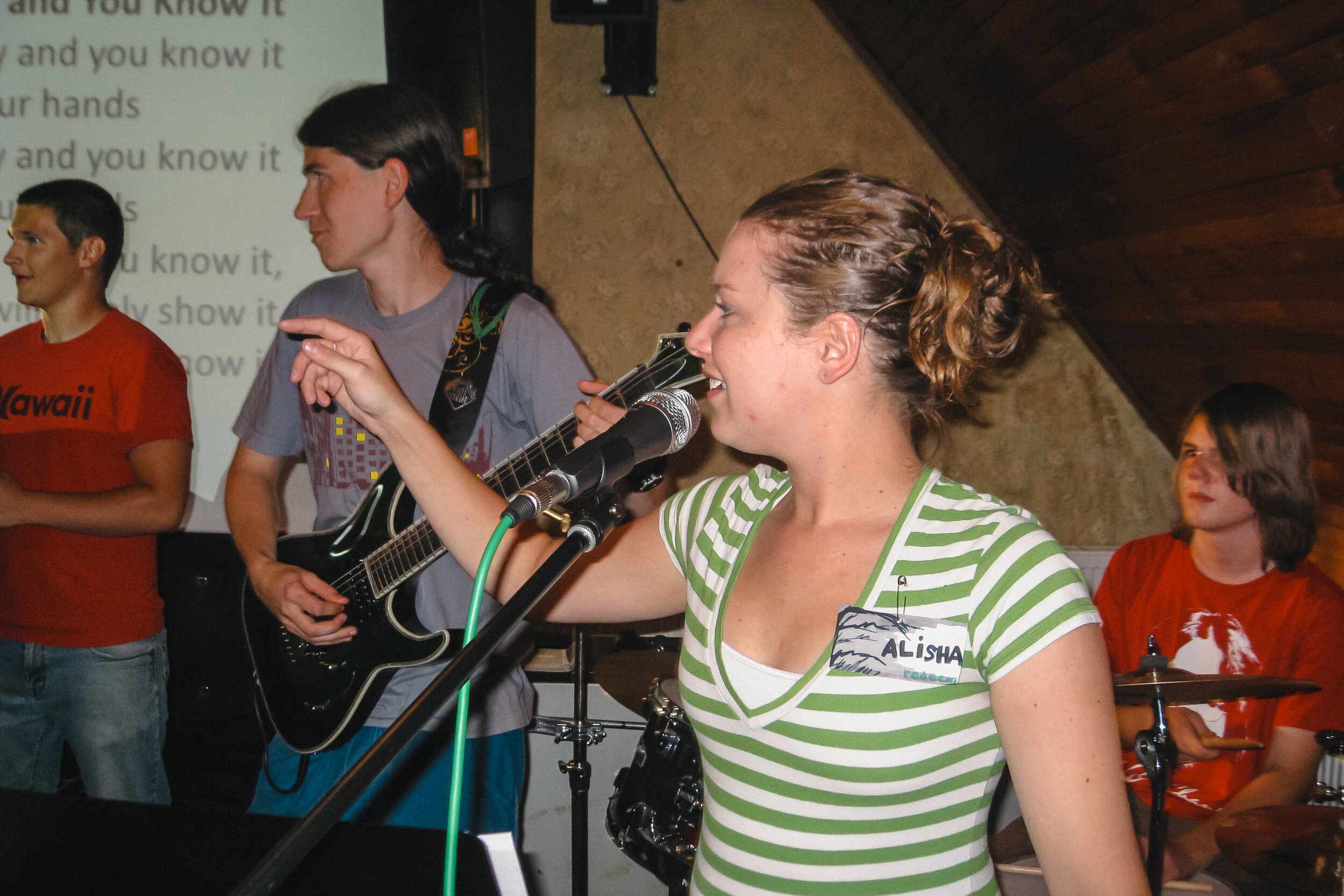
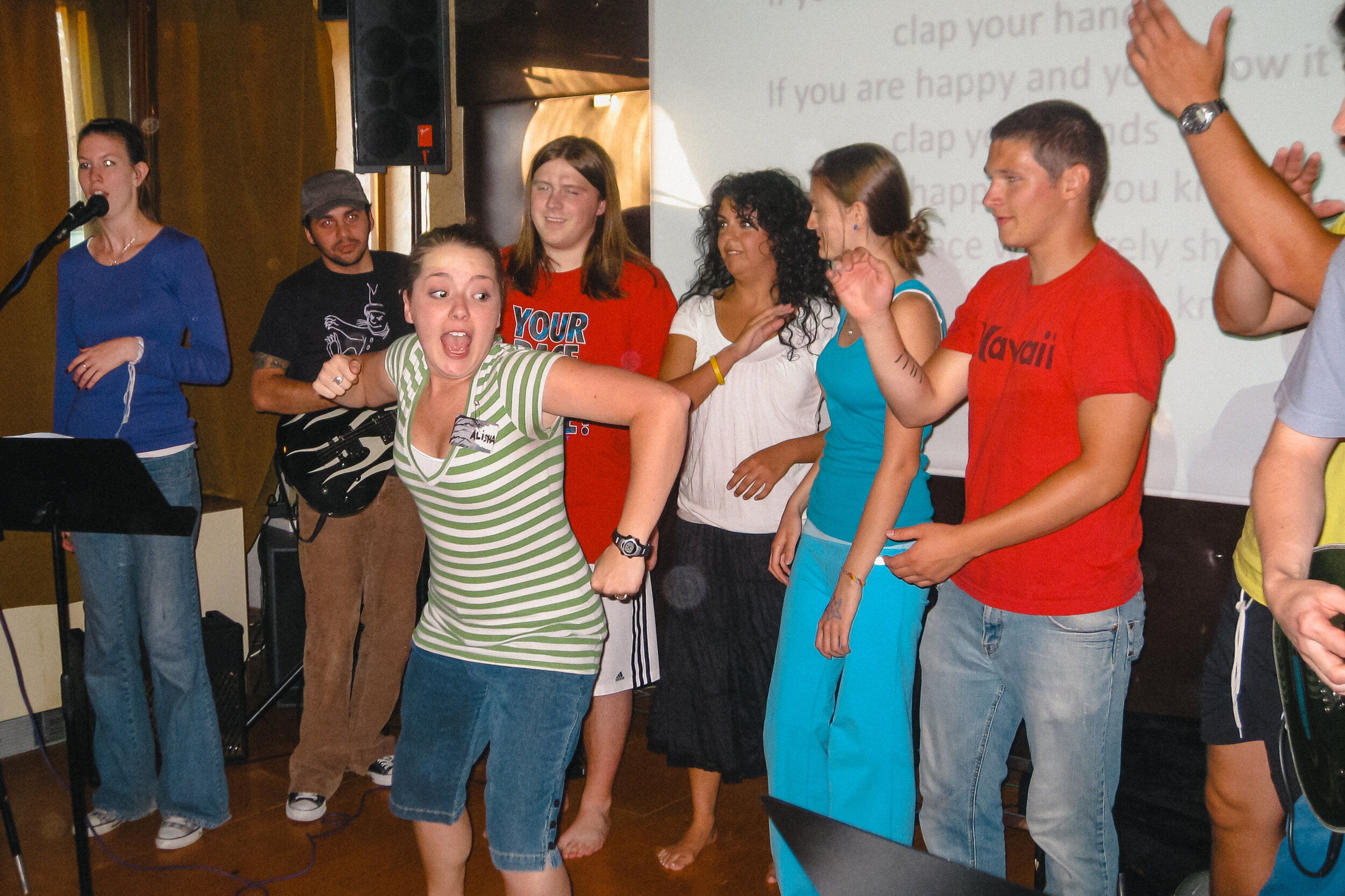
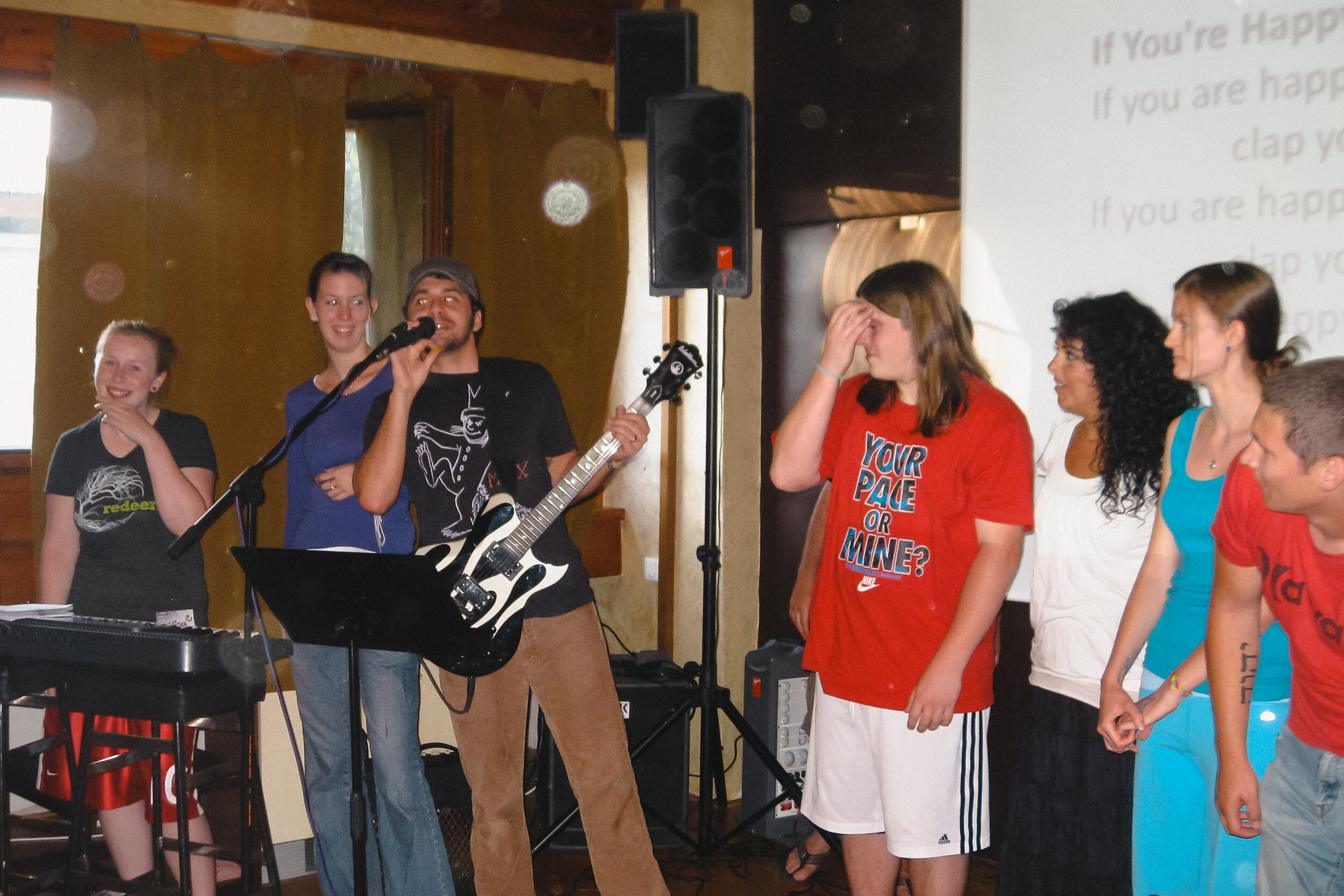
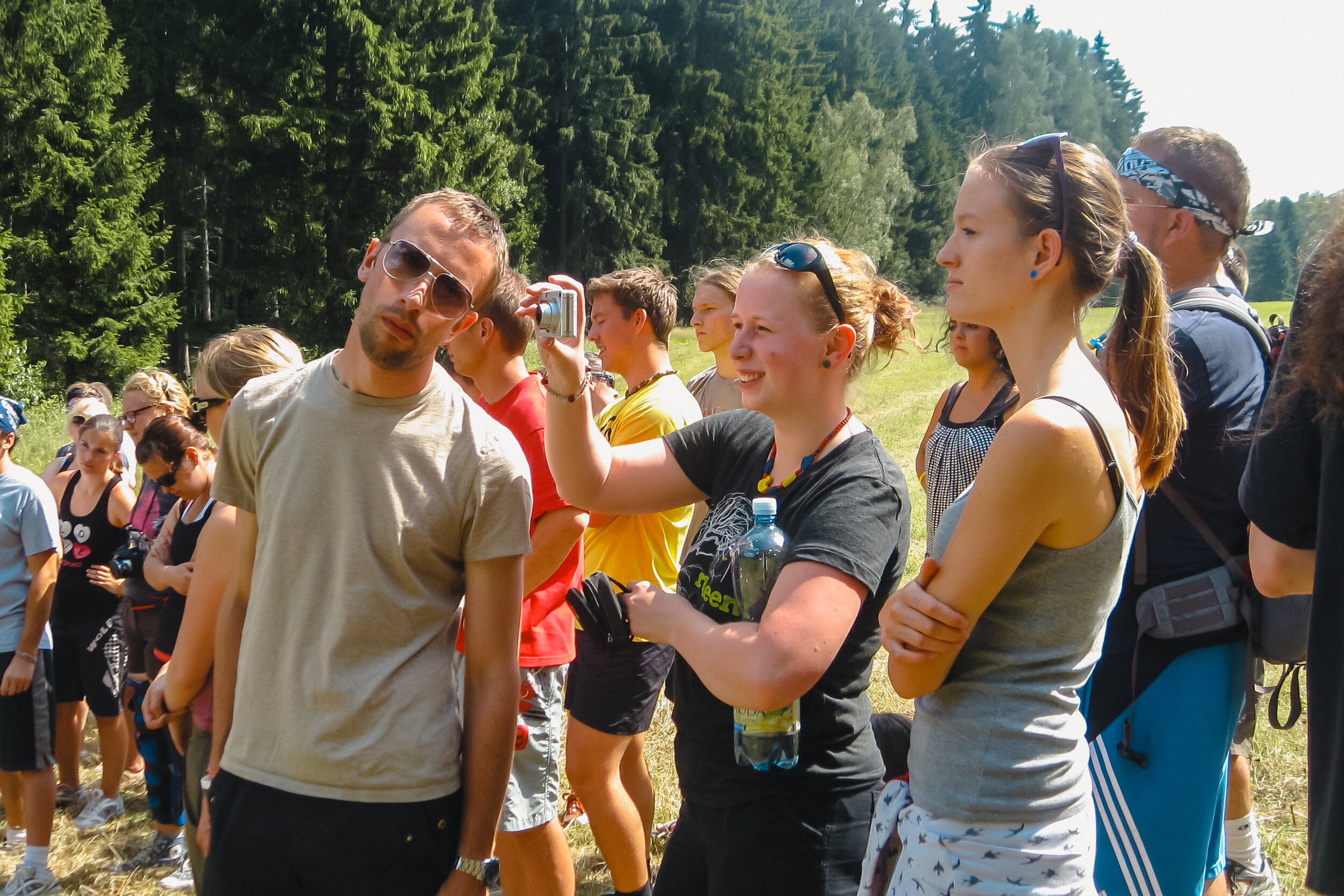
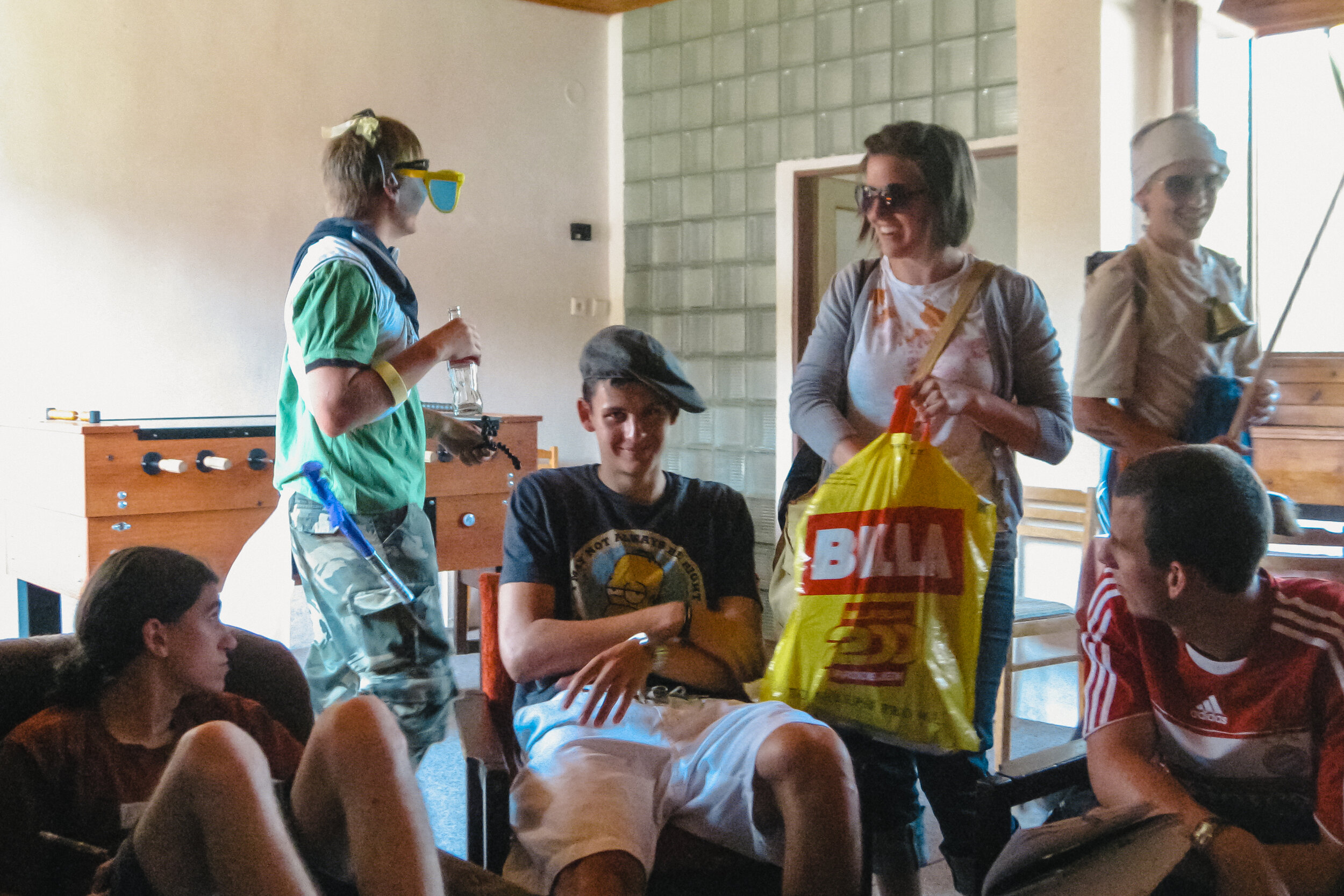
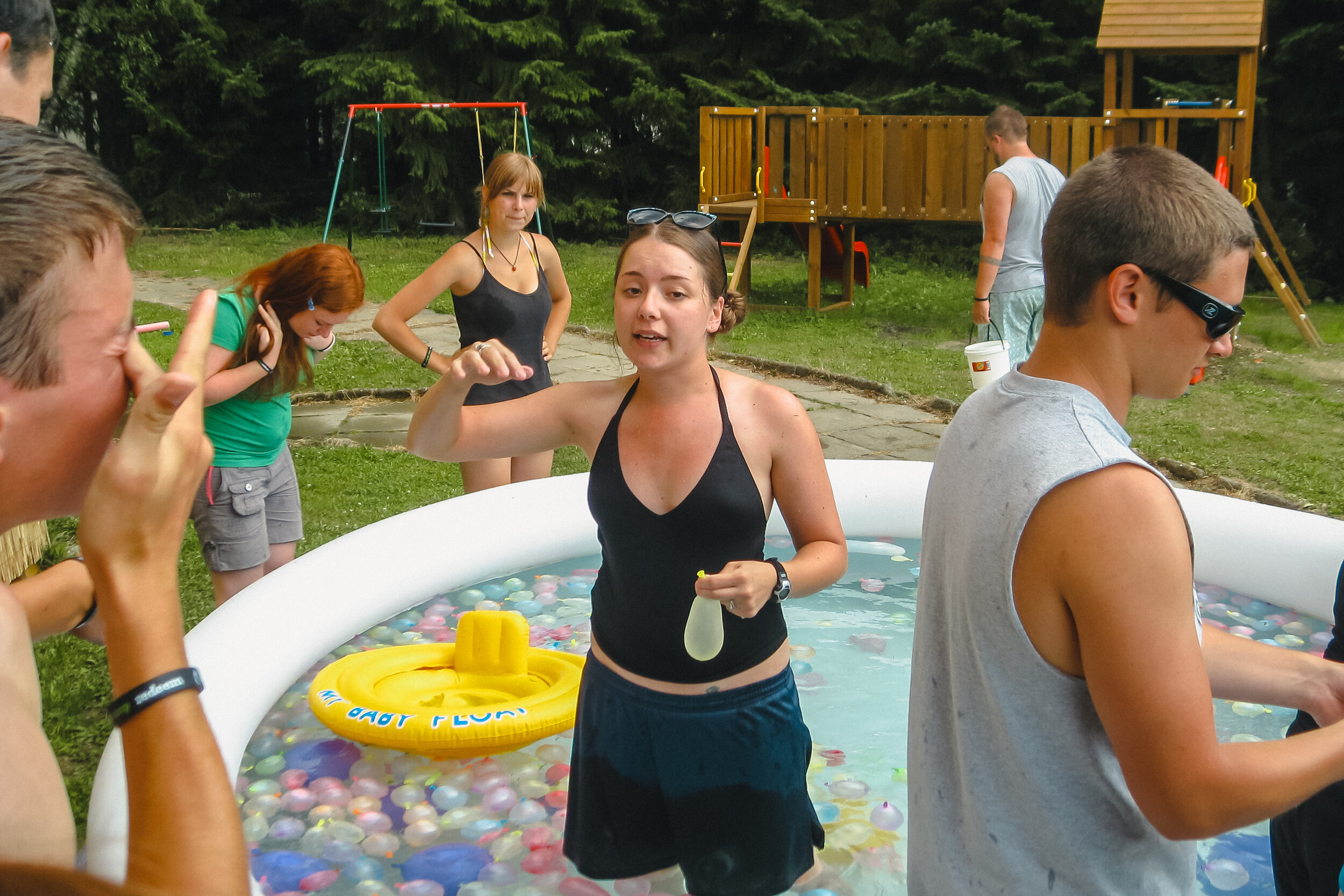
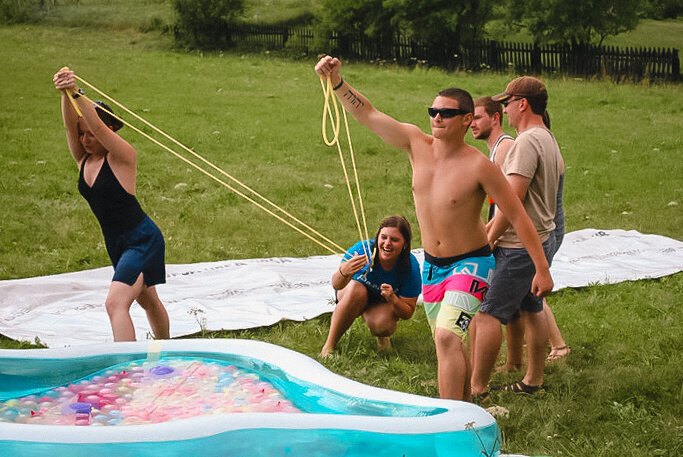
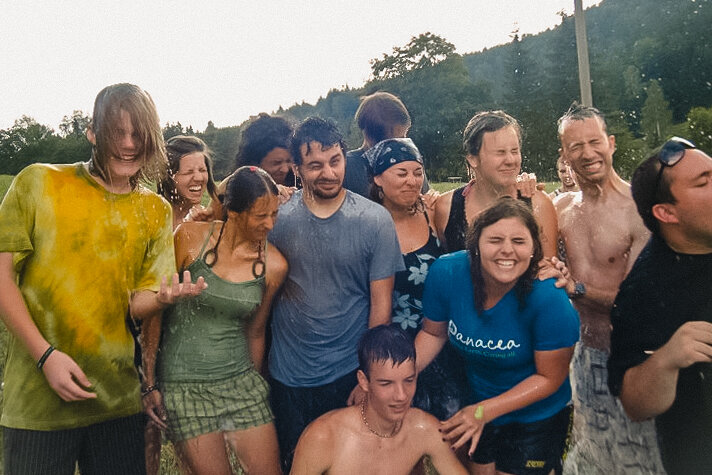
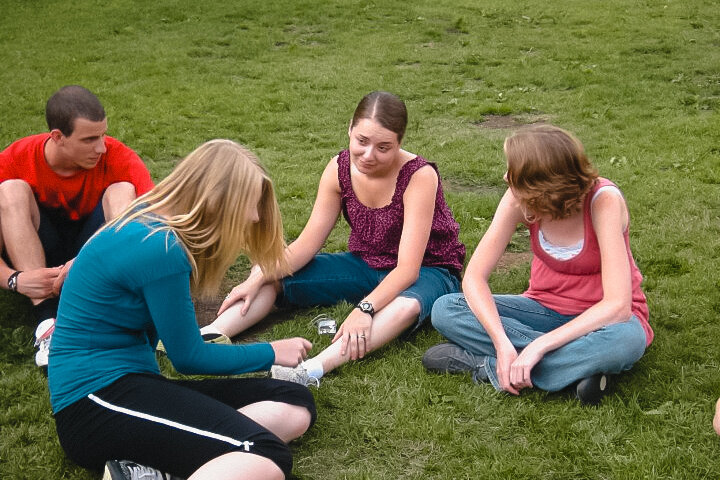
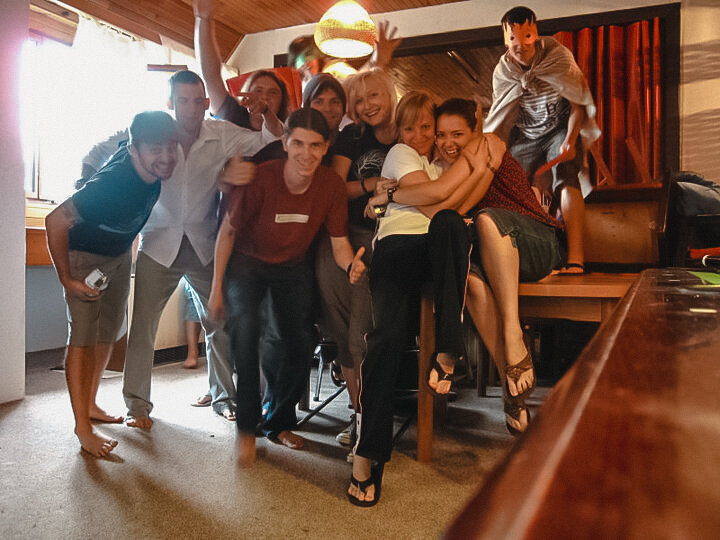
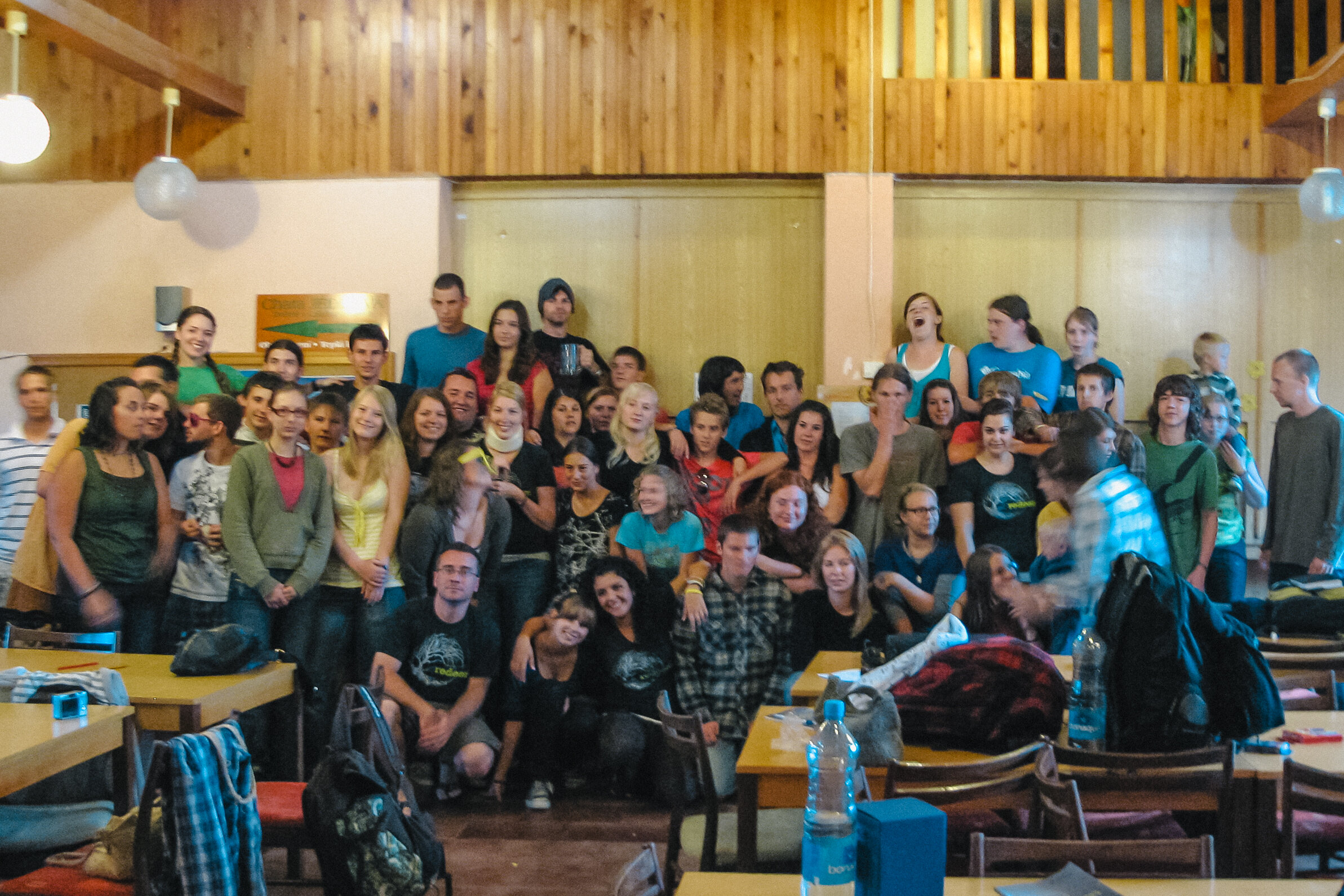
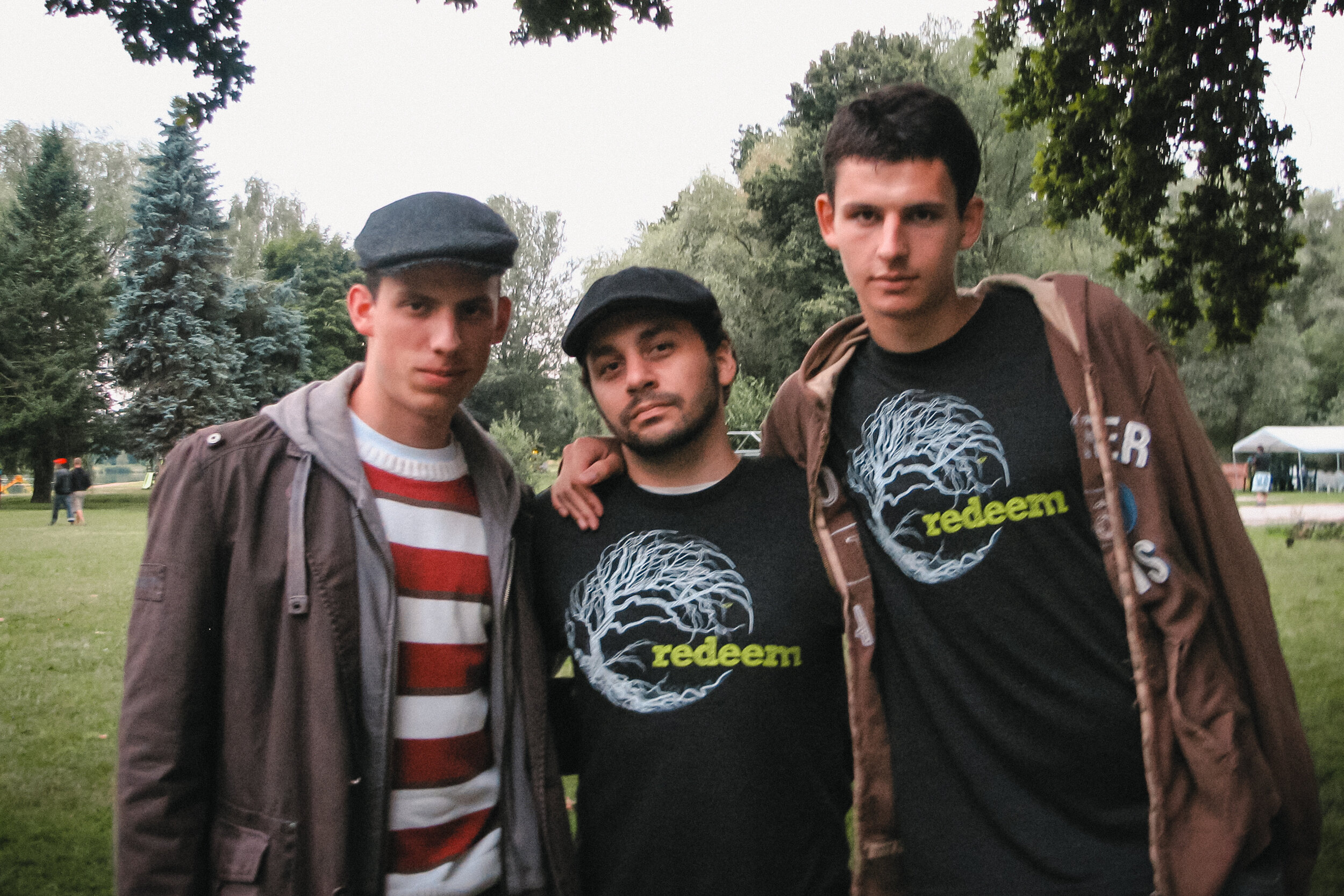
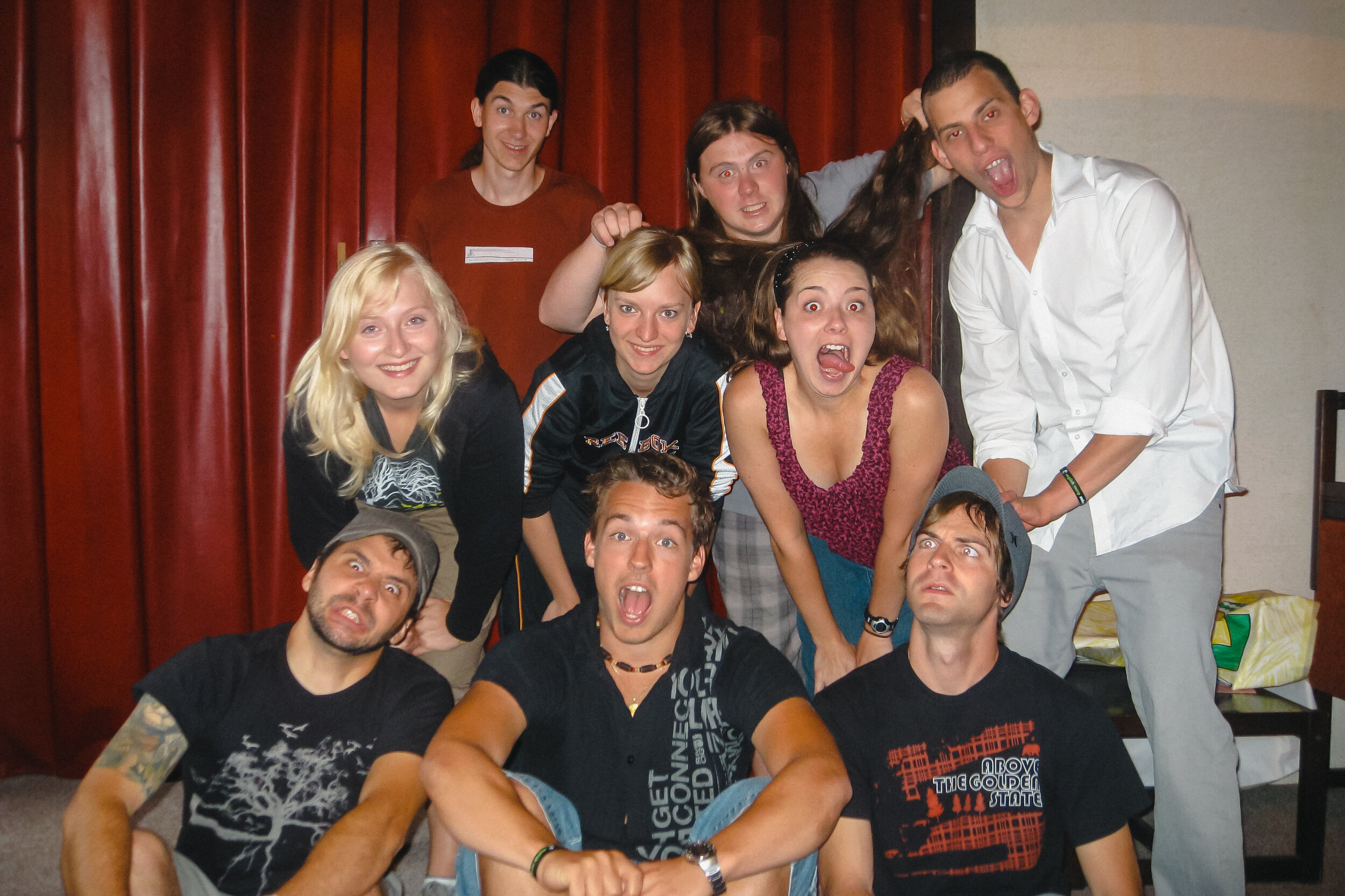
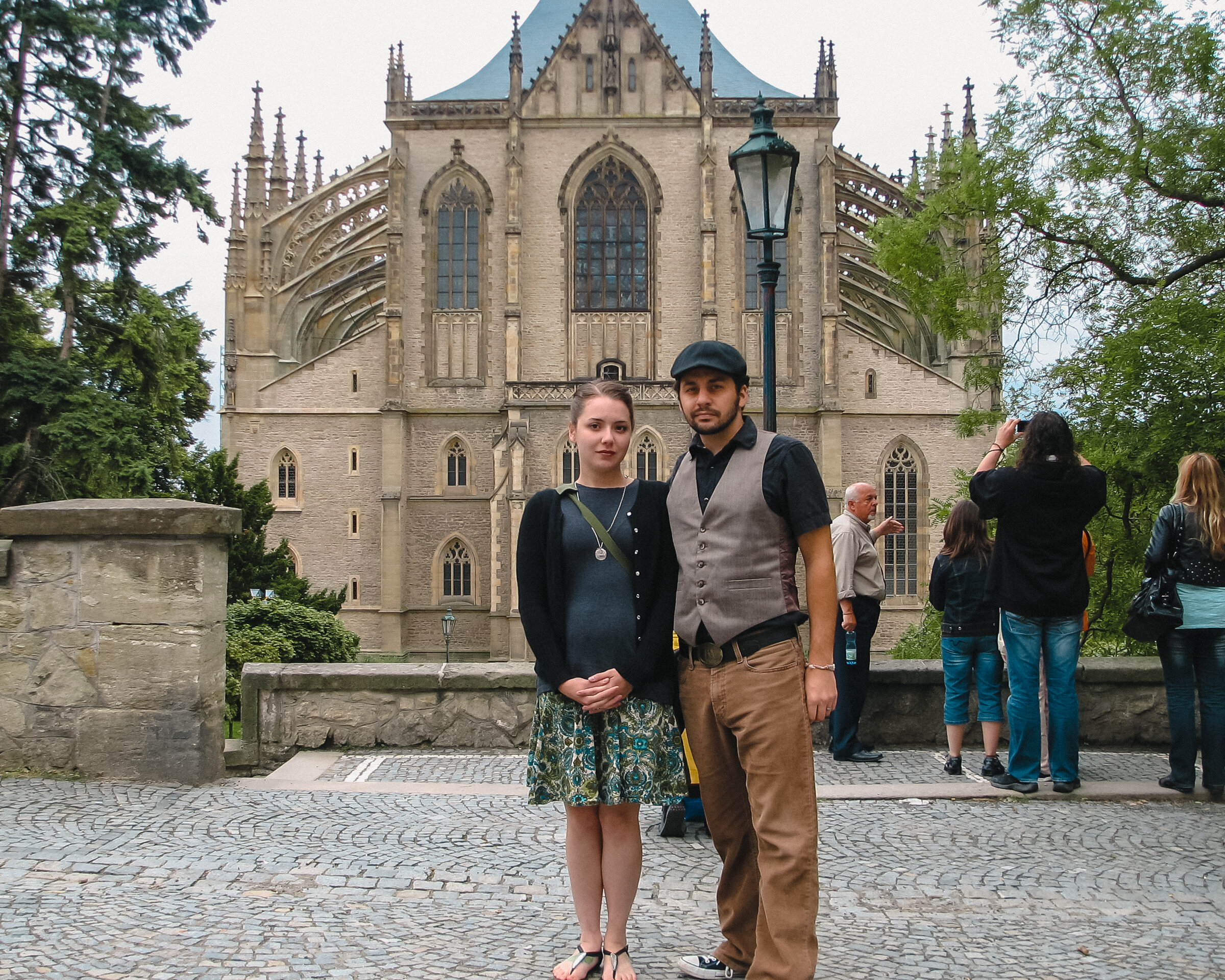
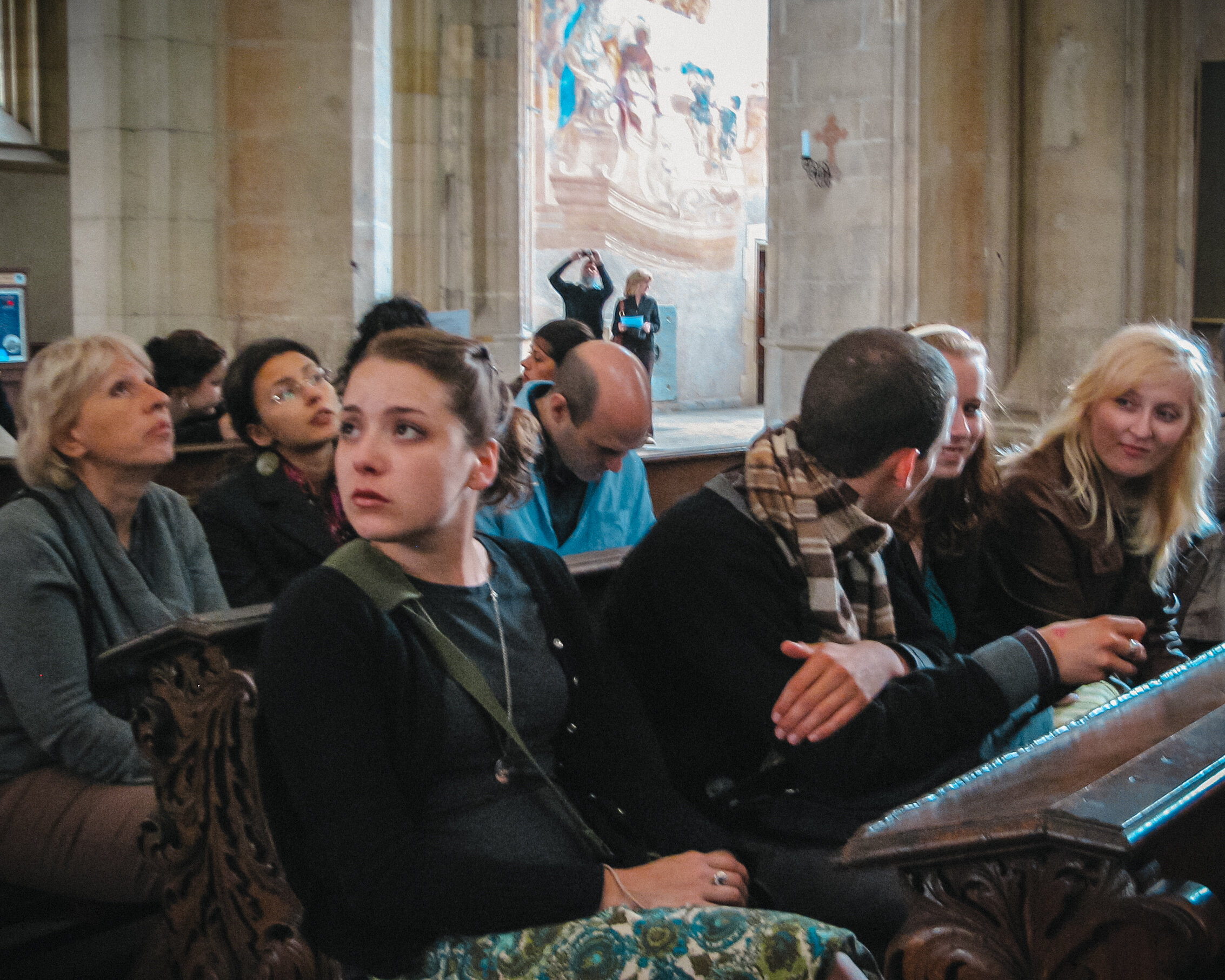
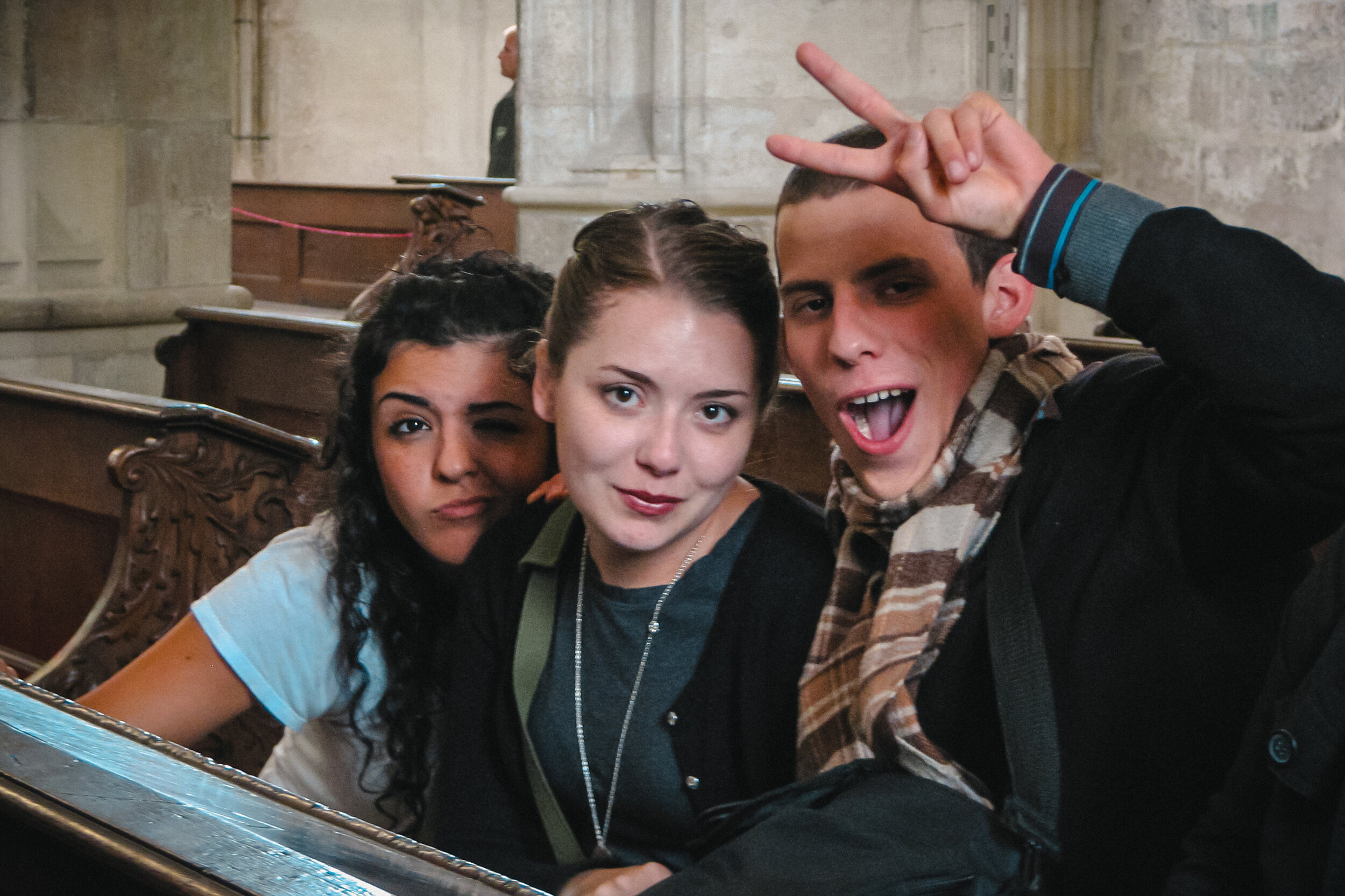
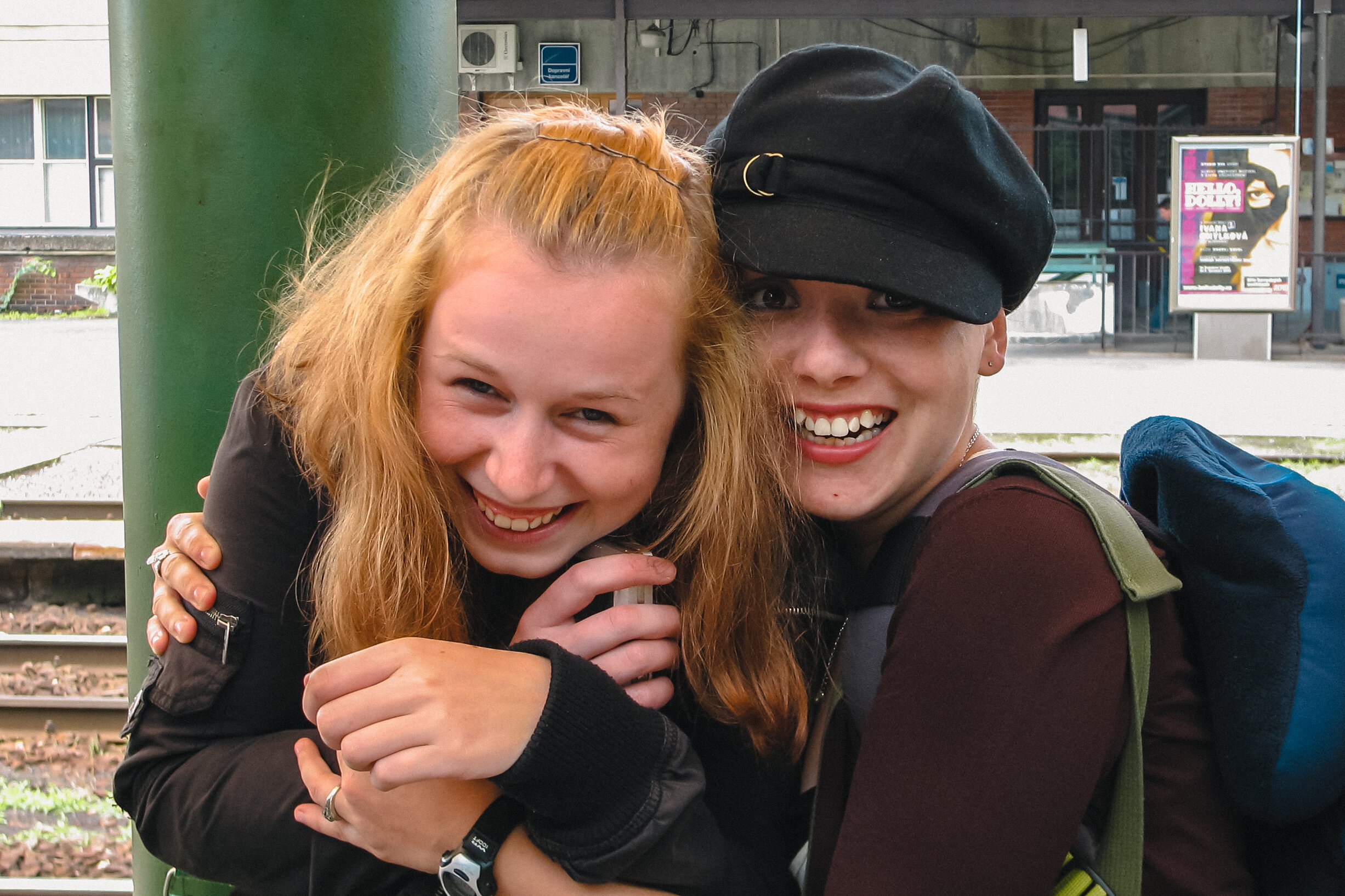

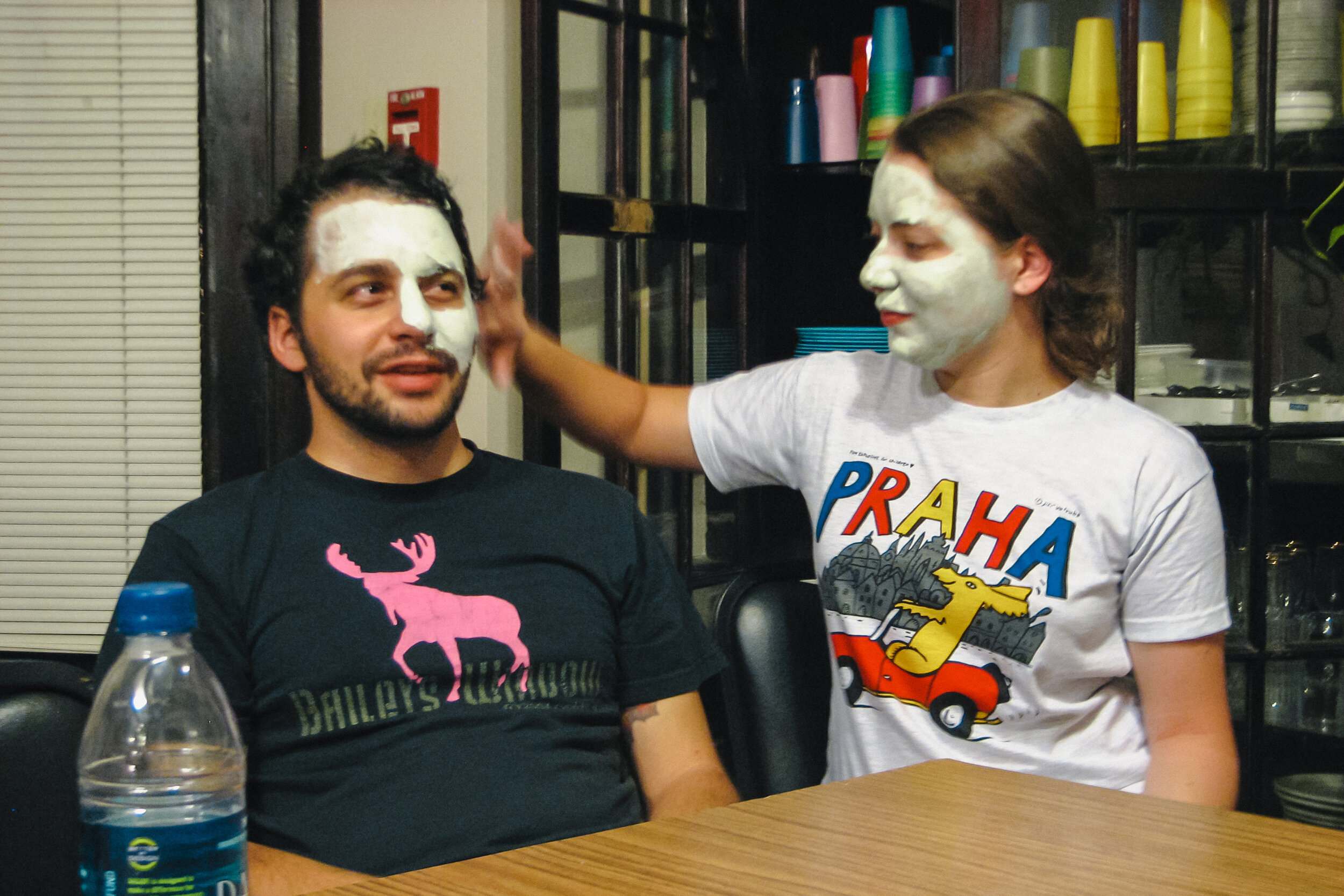
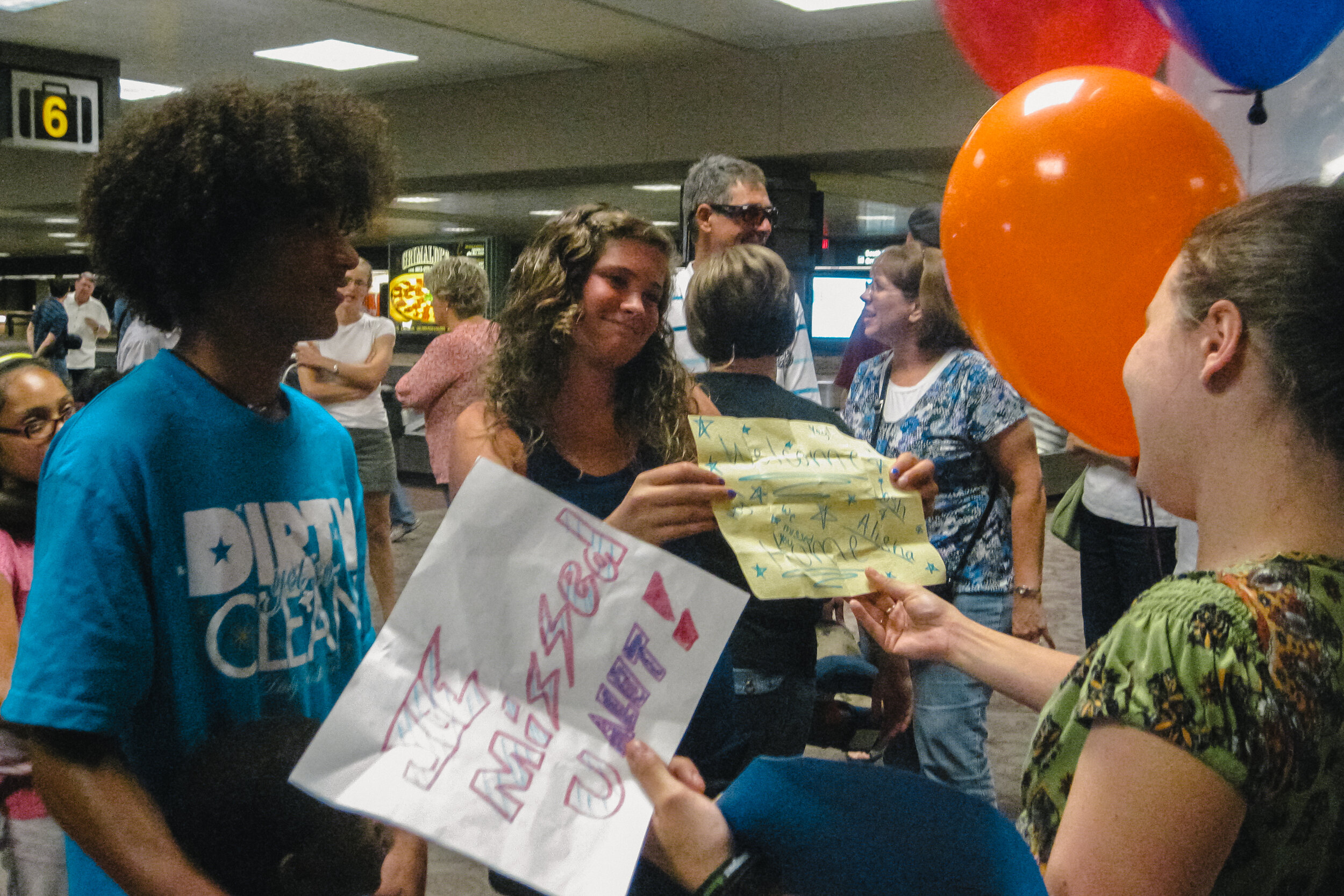
On July 11, 2010, we left on what we dubbed to be a “Worthwhile Adventure.” The story is tied closely to our mutual calling, our marriage, and our understanding of faith and ministry. At the time, we had no idea a that helping with an English camp in the Czech Republic would change the trajectory of our lives so dramatically.
The story goes like this: When we met each other in college, we found that despite our numerous differences (i.e. Mennonite dating a soldier), we both shared a deep sense that God was calling us to lives of service that, on some level, would take place outside the United States. Fast forward five years and, having nearly paid off our student and medical loans, we decided it smart do some form of international service to see how well we’d click.
As neither of us could take a lot of time off work, we found a three-week mission trip through Eastern Mennonite Missions. The destination was secondary and, in fact, even felt like a bit of a compromise. At that point, we were convinced we’d find ourselves in Central or South America — where “normal mission work” happens.
Those days were some of the most dynamic we had ever experienced. We actually first started this blog to document and process in a very journal-like fashion (scroll to the bottom to find some of these posts). Although it’s hard not to read the naivety in our words now, you can still see some important seeds being planted. To celebrate the anniversary of this life-changing trip, we thought it would be good to share personal reflections looking back as gnarled, haggard international church workers 10 years later.
Alisha: sausage-biting ninja
Growing up in a place like Anderson, Ind., leaves one feeling two ways: stuck, and yet inspired to explore. Thankfully, from a young age, God stirred in my heart a desire to pursue Jesus and to love on God’s people outside of my comfort zone. Once Josh and I met at university, it became clear that in spite of our contrasting backgrounds, we were united in a love for Christ and a strong pull towards international mission work.
Looking back to Josh and my first ‘overseas’ mission trip together, it’s amazing to see the trajectory of that visit to the village of Poděbrady in the Czech Republic set our lives on. That experience reinforced three truths that remain ubiquitous in our work today:
Young folks have a desire to seek a relationship with God (regardless of their parent’s faith understandings and perspectives). They are hungry to connect with mentors to dig deeper into their personal spirituality.
Josh and I are uniquely equipped to guide young folks on their faith journeys.
Ministry happens where the people are and, in a post-modern, post-Christendom world, they’re not likely found inside the walls of a traditional church.
Reminiscing about the Czech trip ten years later brings so many fun images to mind: teaching English for the first time, camp-dancing with dozens of youth until the walls dripped with sweat (much more fun than it sounds), breakfasts of white bread and meat pâté, water balloon fights and ski-run waterslides, and...the infamous sausage incident (you’d have had to be there). The fun activities facilitated a space to relate with the youth about their spirituality, truly listen to their personal experiences, and share our own faith journeys.
It’s amazing to consider how this trip was so foundational in shaping the way we would interact with the teens and young adults while serving at LCC International University in Klaipėda, Lithuania, and now in Barcelona as international church workers through Mennonite Mission Network. I’m so grateful for the communities, churches, and individuals who have supported our call to service and feel truly blessed to carry the torch of Christ abroad, shining the light of Jesus to all we meet.
Josh: God is not Dead
This trip was my first encounter with post-Christendom, although I wouldn’t be able to articulate it as that until several years later. We were staying with a host family when we first arrived and one conversation is seared into my brain. While the kids were very active in their church, the parents didn’t attend at all. In talking with the mother, she explained that the Czech people were sold an ideology for 50 years — Soviet Communism — that turned out to be “a lie.” As a result, they were very wary of other outsiders such as Christian missionaries coming and trying to sell them another.
This single conversation has given so much context to the work we’ve done in Lithuania and now in Spain. Expecting folks to “come to the church” or to be receptive to formulaic Evangelical outreach simply doesn’t work. Many times, they actually push people away. Event-driven attempts to be salt and light — such as the English camp — have their place in normalizing faith conversations, but the young people we met who attended church did so because of deep relationships fostered through local faith communities.
I remember feeling immediately empathetic. When Alisha and I first arrived in Arizona in 2005, we visited several churches and, as soon as we’d catch the scent of dis-ingenuousness, we’d never return. Their gospel message felt like a product and we were treated like consumers. For one period early in our marriage, we decided it was better not to go to church.
The relationships we found at Trinity Mennonite Church, on the other hand, totally changed us. Yes the teachings taught us about being Anabaptist, but the people who walked with us gave us a reason to internalize it and inspired us to live it out.
Like post-Christendom, we learned the value of incarnational ministry without realizing that’s what it’s called. We also saw how an Anabaptist perspective resonated within all of this. Our goal was never to “convert” the Czech youth but to simply get to know them. Even so, one camper (who labeled himself “not quite a Christian”) said the faith perspective he witnessed in us pushed him to consider his own beliefs more deeply.
“I like this Anabaptist thing,” he said.
Conclusion
Short-term mission trips can sometimes do much more harm than good in feeding a White savior complex, or saddling a community with a project that may be useless — a topic we may address in a future post. However, in their best moments, they’re potent experiences that transform lives. In this case, it allowed us to discern our own call to missions. That said, it’s important “lives” is plural when speaking in terms of transformation: while the success of a short-term mission should never be based on the missionary's experience, transformation within all involved can indicate something good — at the very least, that a fertile space/opportunity was created in which God could move dynamically.
We saw that happen 10 years ago.
Spending the past week pouring through these old blog posts and mountains of photos has brought many smiles to our faces as we recount fond memories. It’s a reminder that our God is one who speaks and transforms — not just through the scripture, but also through relationships and experiences.
It’s also a reminder of the important role Trinity Mennonite Church played in our spiritual formation. Our years leading the church youth and developing a deeper understanding of missions under the mentorship of Hal Shrader let us hit the ground wired for postmodern ministry. We arrived in the Valley of the Sun as Mennonites and arrived in the Czech as Anabaptists.
This week, we’ll be posting re-edited photos from the camp on the dates of that special English camp, so be sure to follow us on Instagram and Facebook if you haven’t already. And, if you were a camper, please leave us a message!


